Table of contents
Why Chelsea Homeowners Are Choosing Heat Pumps for Year-Round Comfort
Central heat pump install chelsea al offers homeowners an efficient, all-in-one solution for both heating and cooling their homes throughout Alabama's diverse seasons. If you're tired of juggling a separate furnace and air conditioner, a heat pump provides streamlined comfort and significant energy savings. Here's what you need to know:
Quick Answer: Central Heat Pump Installation in Chelsea, AL
- What it is: A single, unified HVAC system that provides both heating and cooling. It works by transferring ambient heat rather than generating it through combustion, essentially functioning as an air conditioner that can reverse its operation to provide warmth.
- Key benefit: Modern heat pumps achieve 300-400% efficiency ratings. This means for every one unit of electricity consumed, they produce three to four units of heating or cooling energy. In contrast, even high-efficiency furnaces top out below 100% efficiency.
- Installation requirements: A successful installation depends on professional load calculations to match the unit to your home's specific needs, a thorough ductwork inspection (with ductless options available), proper unit sizing, and secure electrical connections to ensure safety and performance.
- Cost savings: The efficiency gains translate directly to your utility bills. Homeowners switching from older systems, especially electric resistance heating, typically see a 50% or more reduction in their heating costs.
- Maintenance: To protect your investment and ensure it reaches its full 15-20 year lifespan, bi-annual tune-ups (one in the spring for cooling, one in the fall for heating) are essential for maintaining peak efficiency and preventing breakdowns.
- Best for: Heat pumps are ideally suited for Chelsea's moderate climate, which features the hot, humid summers and milder winters typical of Alabama. They handle high humidity effectively and provide consistent heat without being overwhelmed by extreme cold.
Chelsea's climate presents unique challenges for home comfort. With long, hot, humid summers that demand powerful cooling and occasional cold snaps in winter that require reliable heat, your HVAC system works hard nearly year-round. Traditional systems force you to maintain two separate pieces of equipment—a furnace for winter and an air conditioner for summer. A heat pump offers a smarter, more integrated option.
Heat pumps transfer heat instead of generating it. This fundamental difference is the key to their incredible energy efficiency. In winter, they absorb warmth from the outdoor air (even when it feels cold) and move it inside. In summer, they reverse the process, pulling heat and humidity out of your home and releasing it outdoors.
Modern heat pump technology has evolved significantly. Early models struggled in near-freezing temperatures, but today's systems work effectively even during Alabama's cooler months, providing reliable comfort while keeping your utility bills low. Since heating and cooling can account for about 55% of a home's total energy use, this efficiency gain makes a substantial impact on your household budget.
Want a concise overview of how heat pumps work? The U.S. Department of Energy explains the basics here: Heat pump systems.
Whether you're replacing an aging, inefficient HVAC system or installing climate control in a new home, understanding your heat pump options is the first step toward making the right choice for your Chelsea residence.
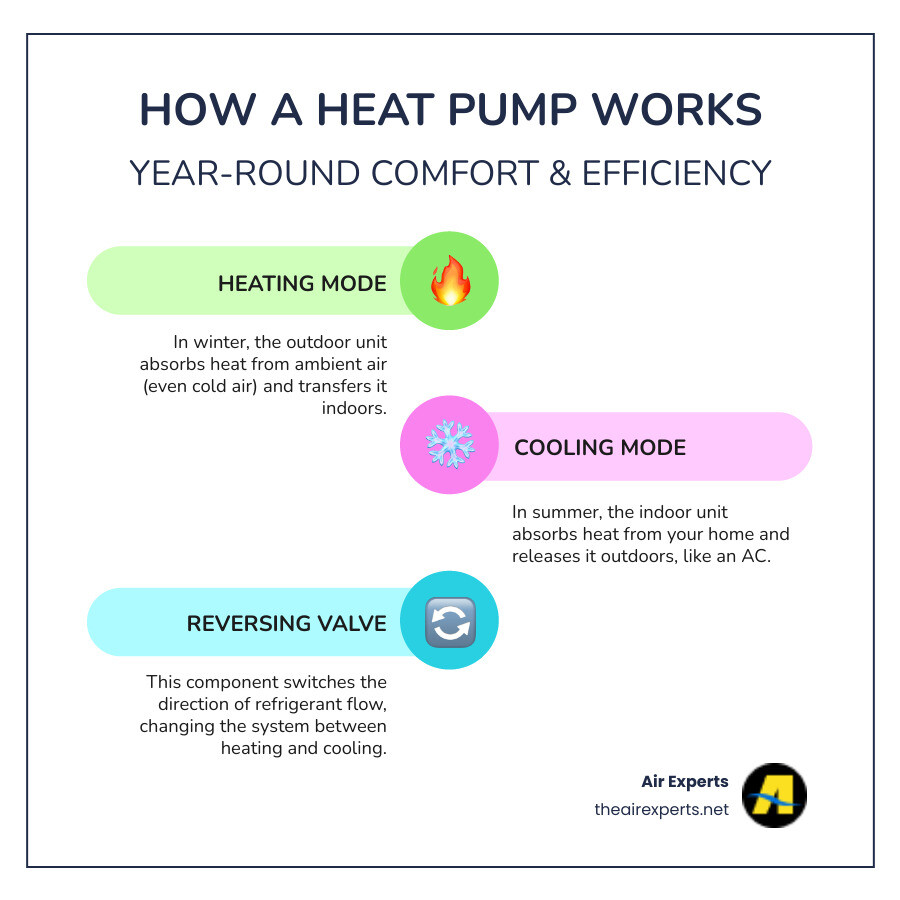
Why a Heat Pump is a Smart Choice for Your Chelsea Home
If you're looking for a smarter, more efficient, and convenient way to heat and cool your home in Chelsea, AL, a heat pump deserves your serious consideration. These versatile systems have transformed how homeowners think about year-round comfort, and for very good reasons.
The biggest advantage? Heat pumps don't generate heat—they move it. This simple but profound difference makes them incredibly efficient. While a traditional furnace must burn fuel (gas, propane) or use energy-intensive electric resistance coils to create warmth, a heat pump cleverly transfers existing heat from one place to another. In winter, it pulls warmth from the outdoor air and brings it inside. In summer, it does the exact reverse, functioning like a standard air conditioner to remove heat from your home.
This heat transfer process allows heat pumps to achieve astonishing efficiency ratings of 300-400%. In practical terms, for every unit of electricity you pay for, you get three to four units of heating or cooling power. Compare that to even the most advanced furnaces, which can never exceed 100% efficiency (and are often closer to 80-98%). The difference shows up quickly on your utility bills—Chelsea homeowners who switch from inefficient electric resistance heating often see their heating costs drop by 50% or more.
Beyond saving money, heat pumps offer significant environmental and safety benefits. Because they don't burn fossil fuels on-site, there is no combustion happening in your home. This completely eliminates the risk of carbon monoxide exposure from your heating system and results in a much smaller carbon footprint. For a community like Chelsea, which is known for its beautiful natural surroundings and family-focused atmosphere, choosing an eco-friendly system is a decision you can feel good about.
There's also the best convenience factor. One system handles both heating and cooling, simplifying your home's climate control. There's no need to maintain and repair separate furnace and air conditioner units. The same reliable system that keeps you cool and dry through humid Alabama summers also provides cozy warmth on those chilly winter nights. And because it's continuously circulating and filtering the air, you'll likely notice improved indoor air quality. This constant filtration helps reduce airborne dust, pollen, pet dander, and other allergens, creating a healthier living environment for your family.
With proper professional maintenance, a modern heat pump can typically last 15-20 years, often outlasting traditional separate systems while delivering consistent comfort and superior efficiency for its entire lifespan.
How Heat Pumps Differ from Traditional Systems
Understanding what sets heat pumps apart helps explain why they work so well for Chelsea's climate. Most homes traditionally use two separate systems: a furnace for winter and an air conditioner for summer.
- Traditional furnaces create heat through combustion (burning natural gas or propane) or electric resistance coils. They are generating new heat from scratch, a process that inherently consumes a large amount of energy.
- Air conditioners don't create cold; they move heat. They use a chemical refrigerant to absorb heat from your indoor air and transfer it outside, leaving cooled air behind. This refrigeration cycle is an efficient way to cool a space.
Here's where it gets interesting: a heat pump uses that same efficient refrigeration cycle year-round. In cooling mode, it works exactly like a high-efficiency air conditioner. But it contains a special component called a reversing valve that allows it to flip the process. When you need heat, the valve switches the direction of the refrigerant flow. The outdoor coil begins to absorb heat energy from the air (yes, even from cold winter air—there's usable thermal energy available down to surprisingly low temperatures), and the indoor coil releases that warmth into your home. The refrigerant continuously cycles, changing from a liquid to a gas and back again to effectively capture and release heat.
This heat transfer approach is fundamentally more efficient than creating heat from nothing. It's like moving furniture instead of building it from scratch. This is why heat pumps can achieve those impressive 300-400% efficiency ratings that traditional heating systems simply can't match.
Available Heat Pump Systems
When you're ready for a central heat pump install chelsea al, you'll find several system types to consider. Each has its place depending on your home's layout, your budget, and your comfort goals.
| Heat Pump Type | Best For | Key Features |
|---|---|---|
| Air-Source Heat Pumps | Most homes, especially those with existing ductwork | The most common and affordable type; uses outdoor air as the heat source/sink; works seamlessly with central duct systems. |
| Ductless Mini-Splits | Homes without ducts, room additions, or for zoned comfort | Consists of an outdoor unit connected to one or more indoor units; allows for independent temperature control in different rooms. |
| Geothermal Heat Pumps | Homeowners seeking maximum efficiency and long-term investment | Uses the stable temperature of the earth via underground pipes; highest possible efficiency and lowest operating costs. |
Air-source heat pumps are the most popular choice for Chelsea homes. They integrate with your existing ductwork to provide reliable, whole-home heating and cooling. Modern units have excellent efficiency ratings (SEER2 for cooling, HSPF2 for heating) and are perfectly suited for our moderate Alabama climate.
Ductless mini-split systems are a fantastic, flexible solution when you don't have ductwork or want to solve specific comfort problems. Each indoor unit, typically mounted high on a wall, connects to a single outdoor compressor and can be controlled independently. They are ideal for home additions, converted garages or basements, sunrooms, or for creating different temperature zones to satisfy everyone in the house.
Geothermal heat pumps represent the pinnacle of efficiency. Instead of exchanging heat with the variable outdoor air, they use the earth's constant underground temperature (around 55°F year-round). A series of pipes, or a loop field, is buried in your yard to transfer heat. While the installation is more involved, the payoff comes in the form of dramatically reduced utility bills and an exceptionally long system lifespan.
Some homeowners also consider dual-fuel systems, which pair an electric heat pump with a backup gas furnace. The ultra-efficient heat pump handles the vast majority of heating and cooling needs. During the rare, coldest days of winter, a smart thermostat automatically switches to the gas furnace for powerful backup heat. This setup combines the best of both technologies for ultimate peace of mind and year-round efficiency.
.svg)
.svg)
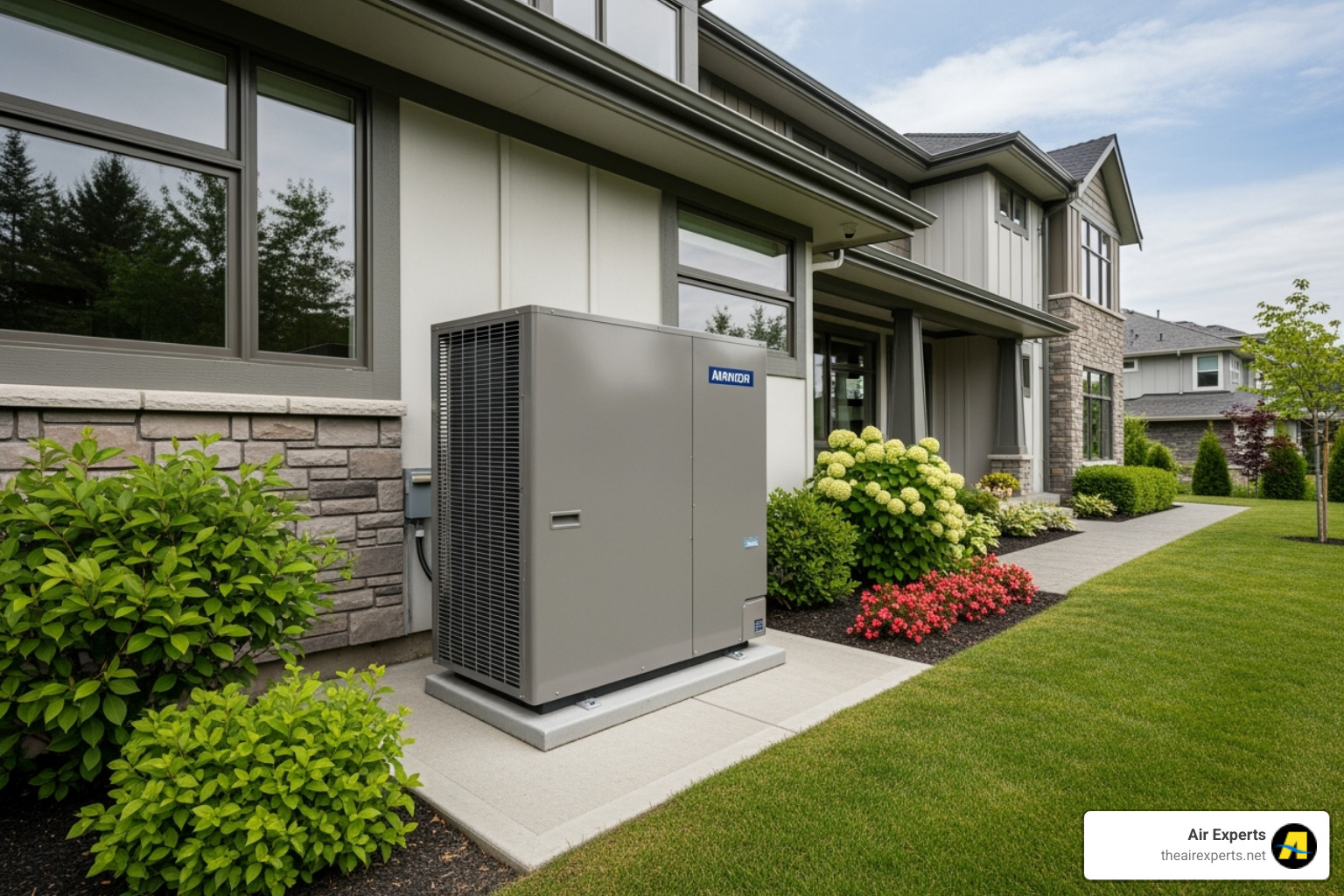
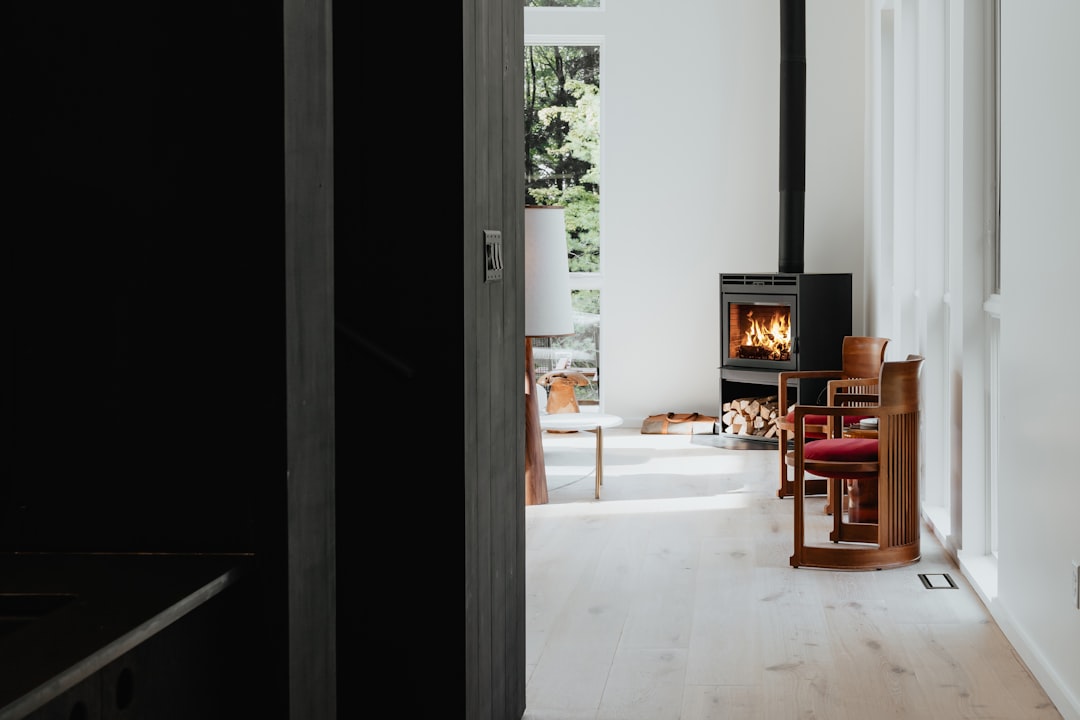

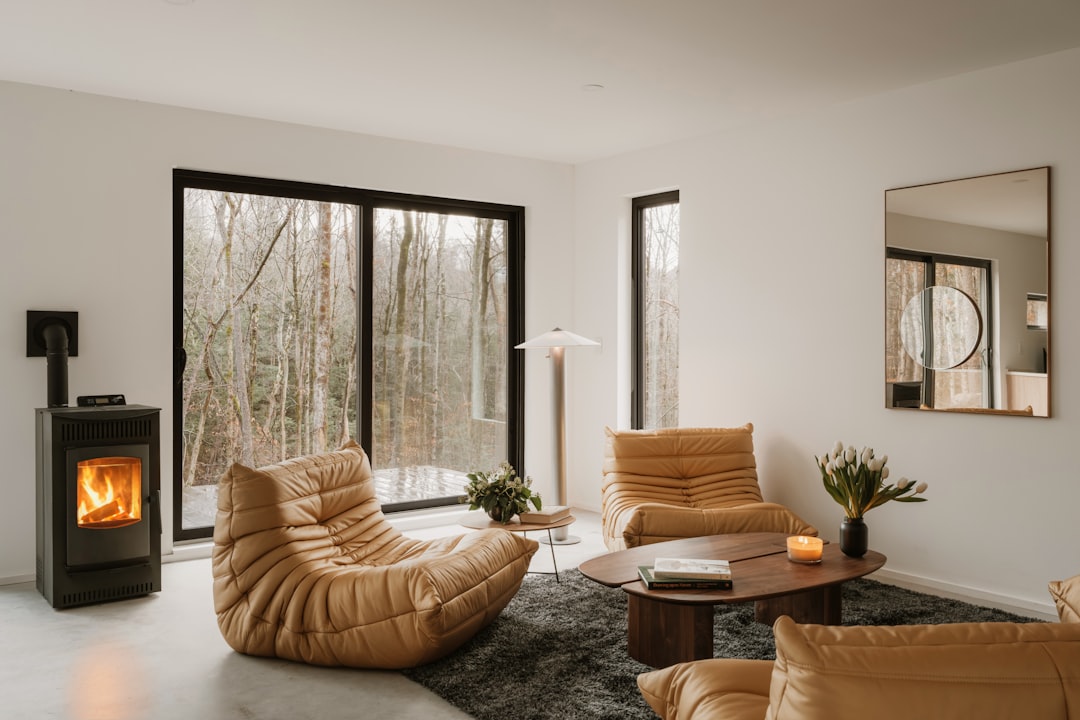

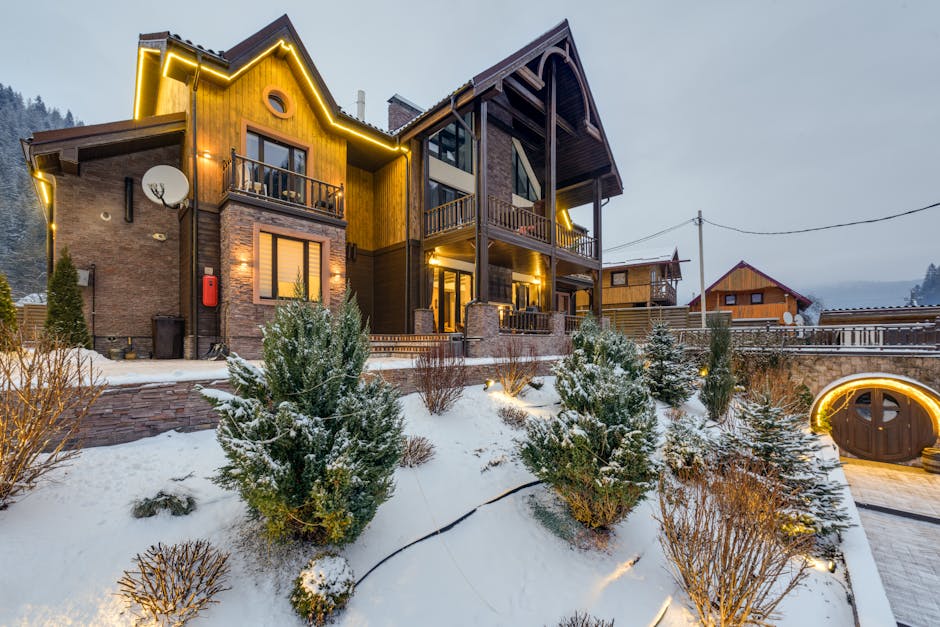

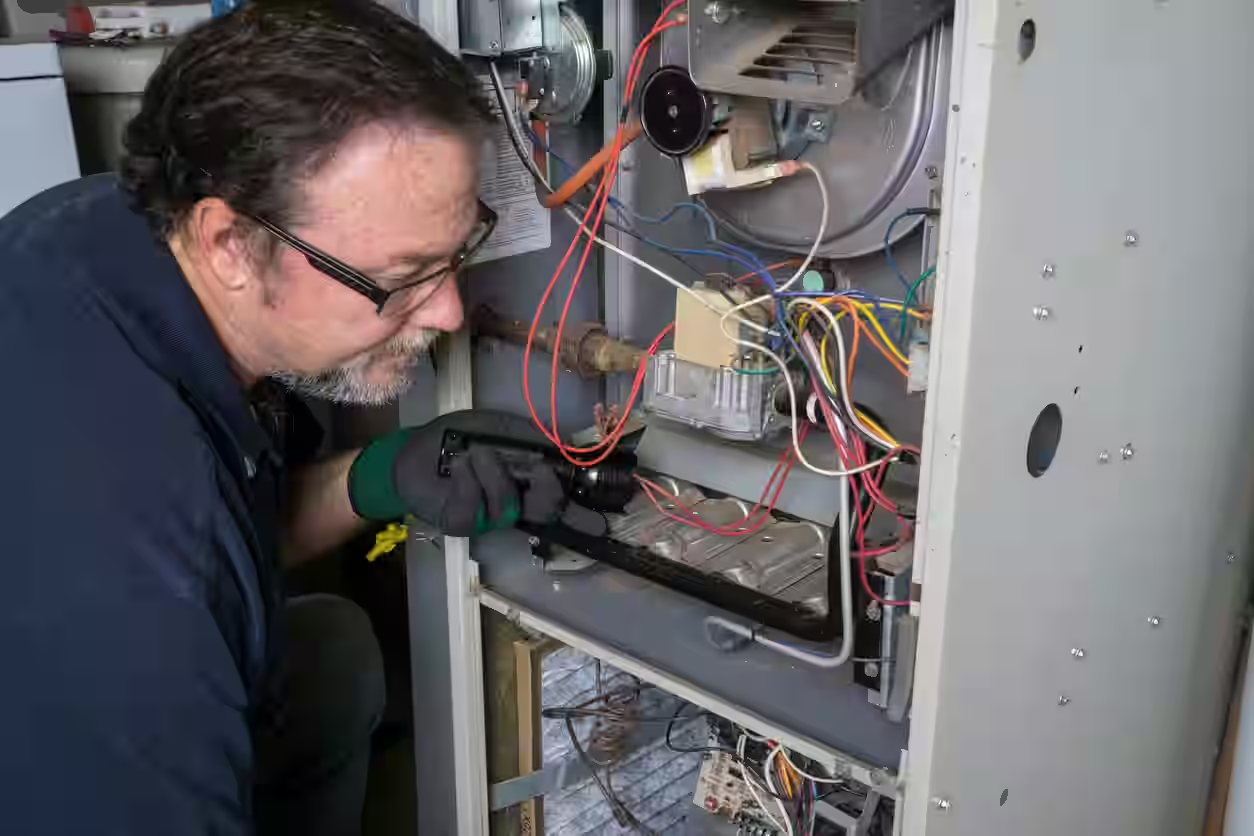
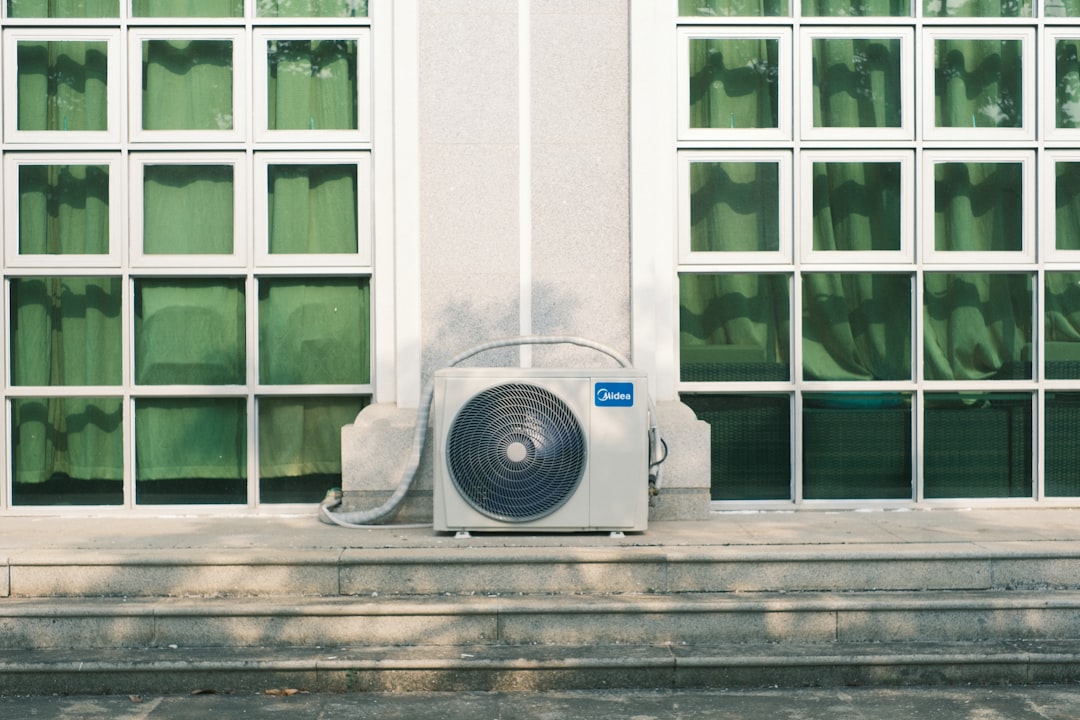

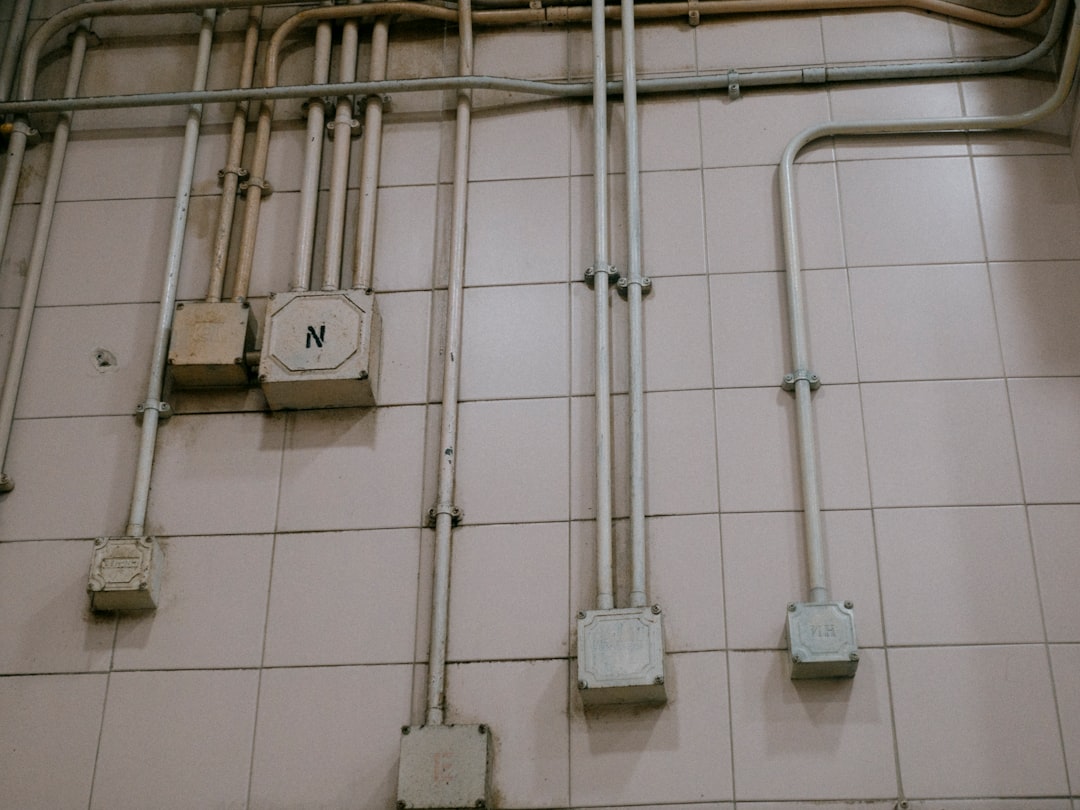
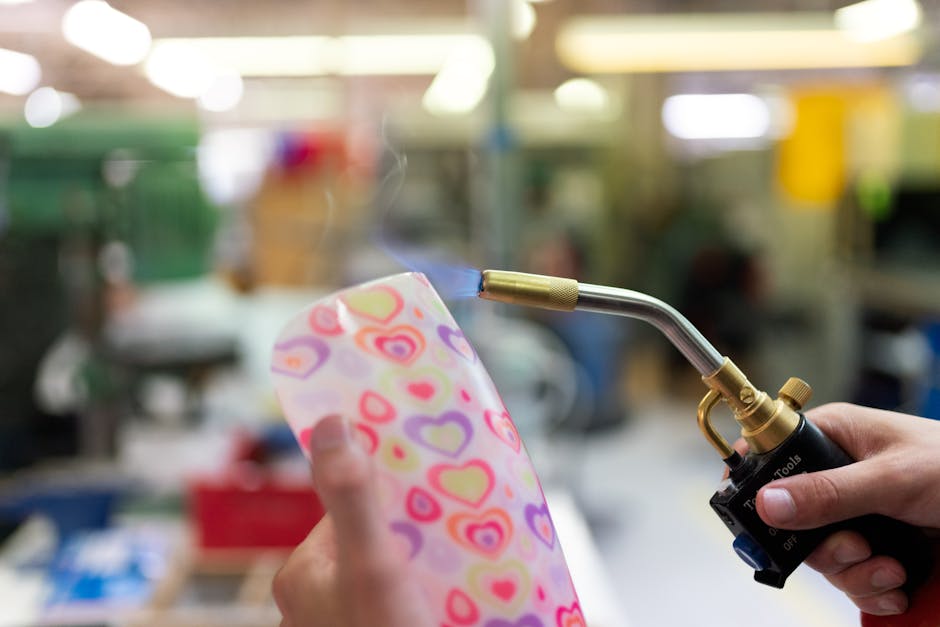

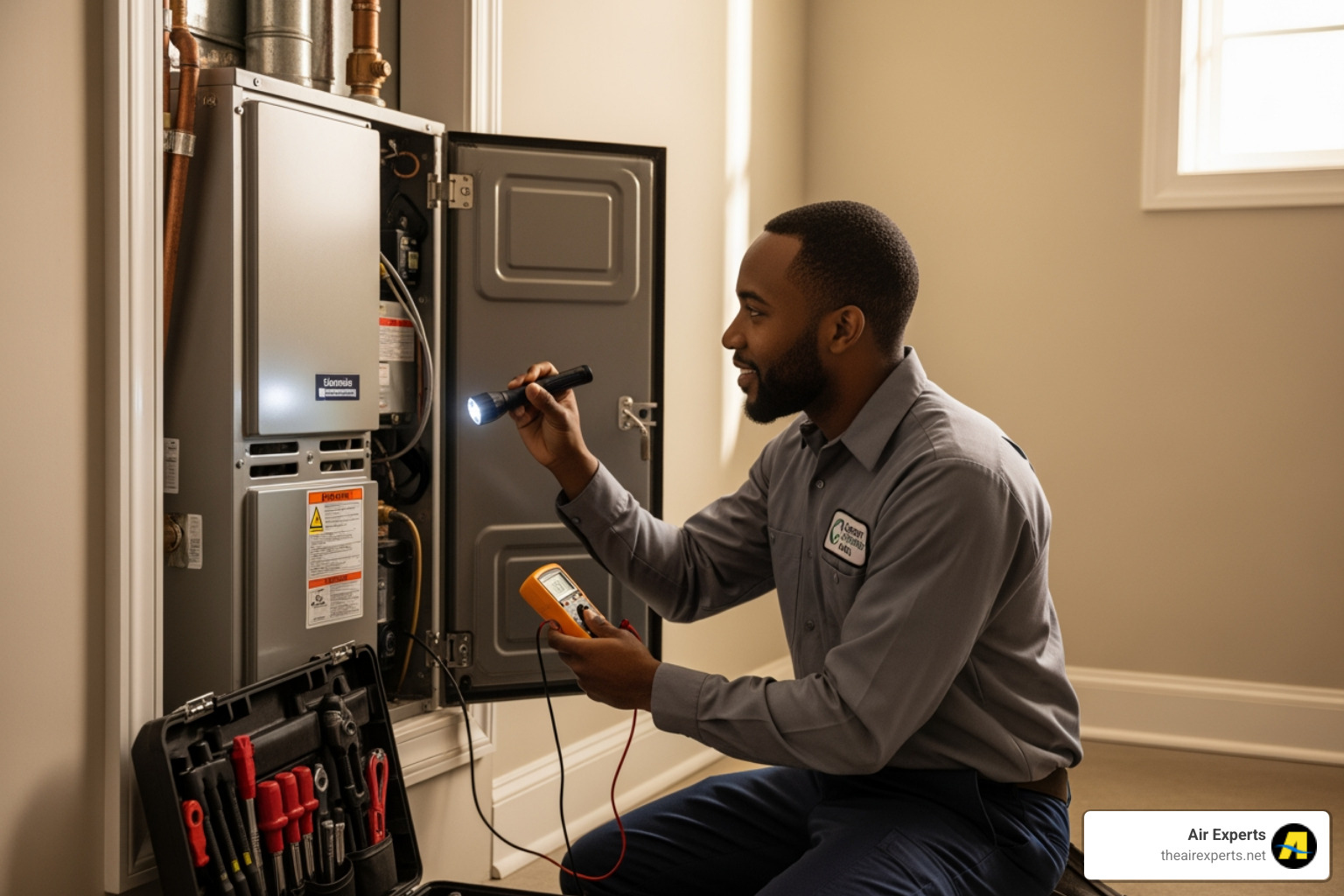
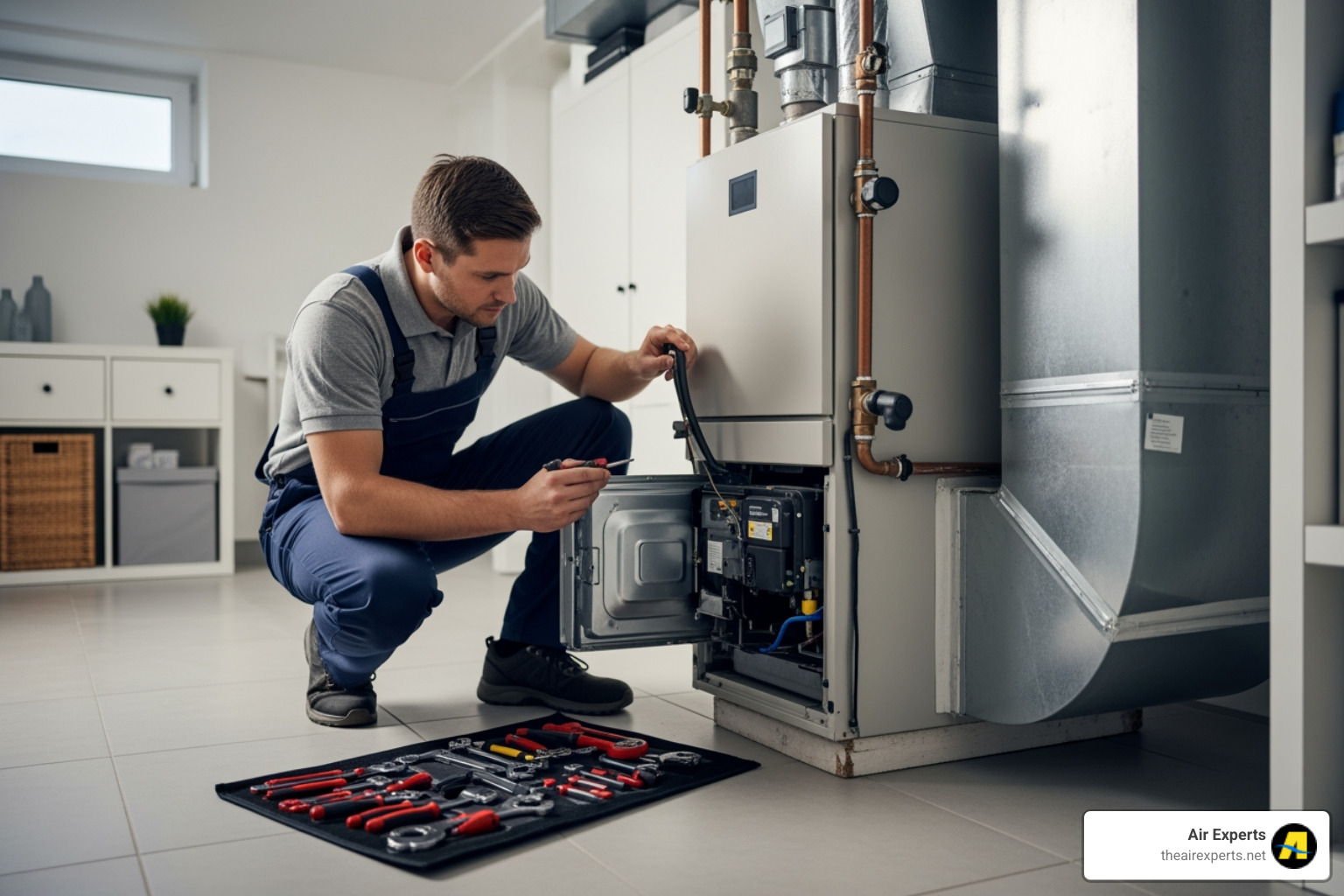
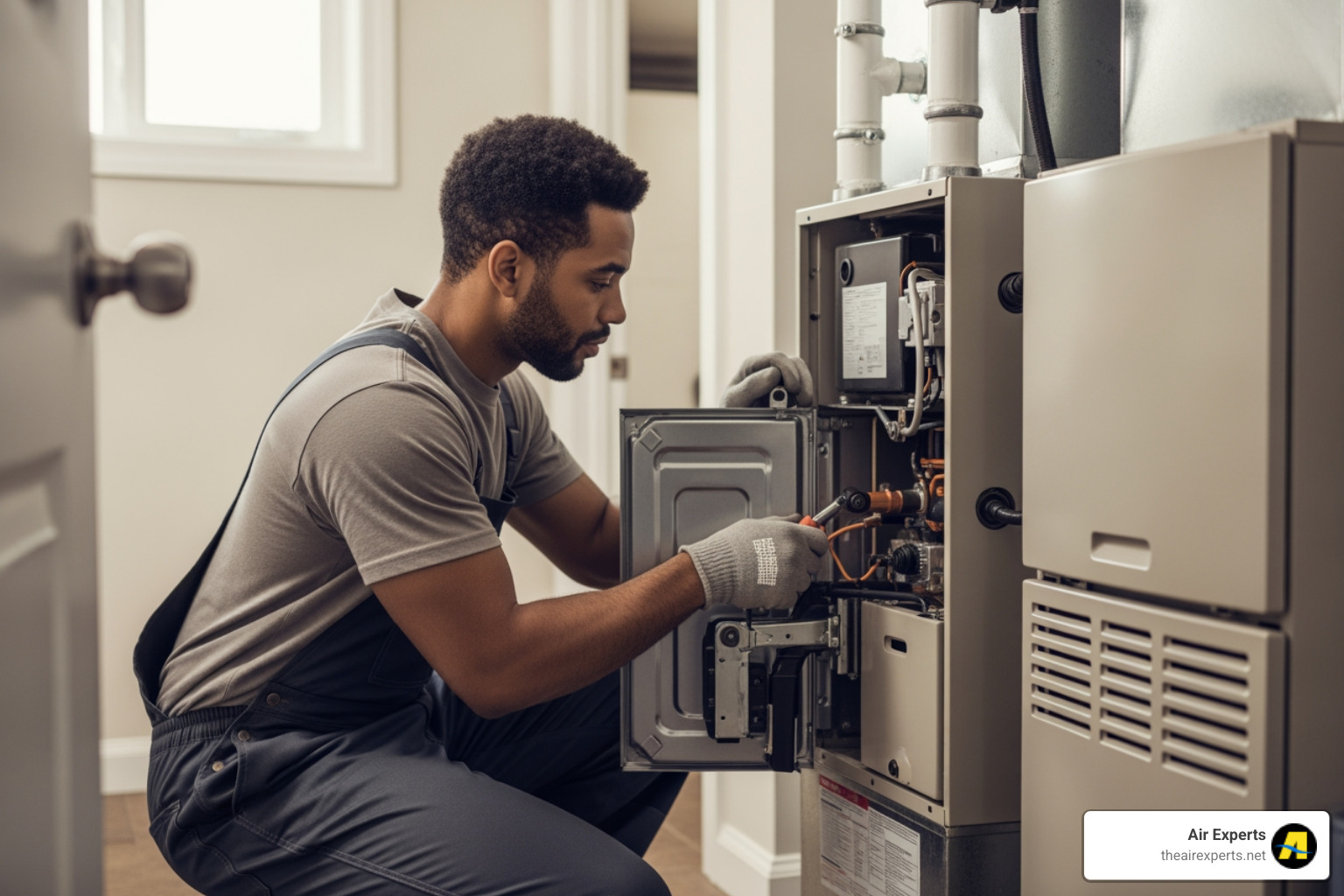


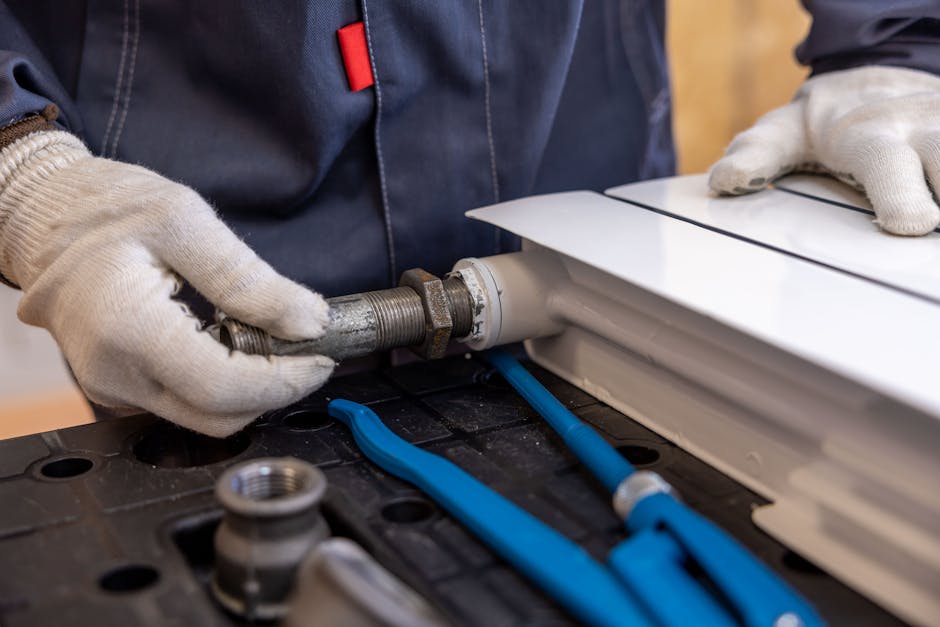

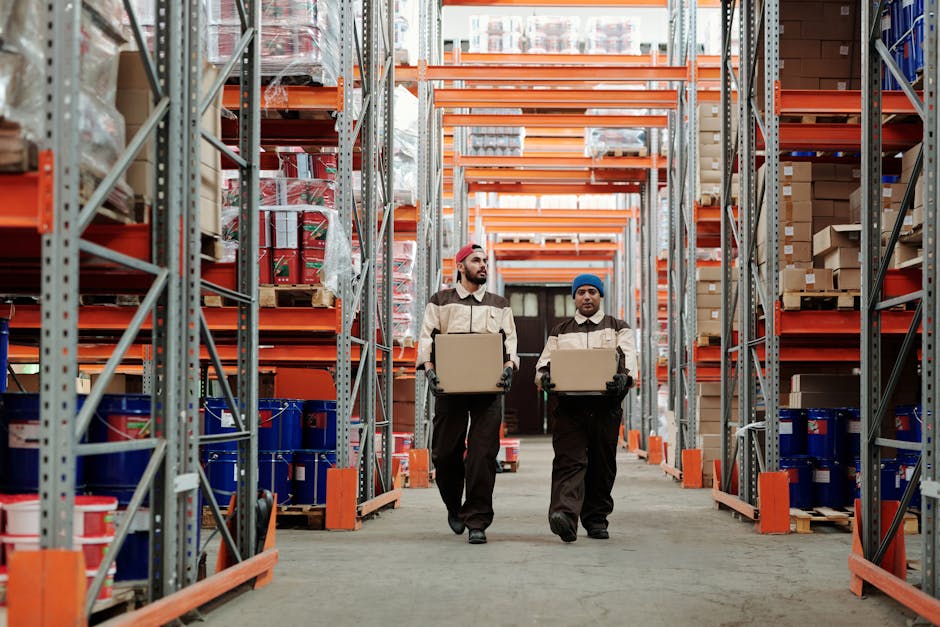
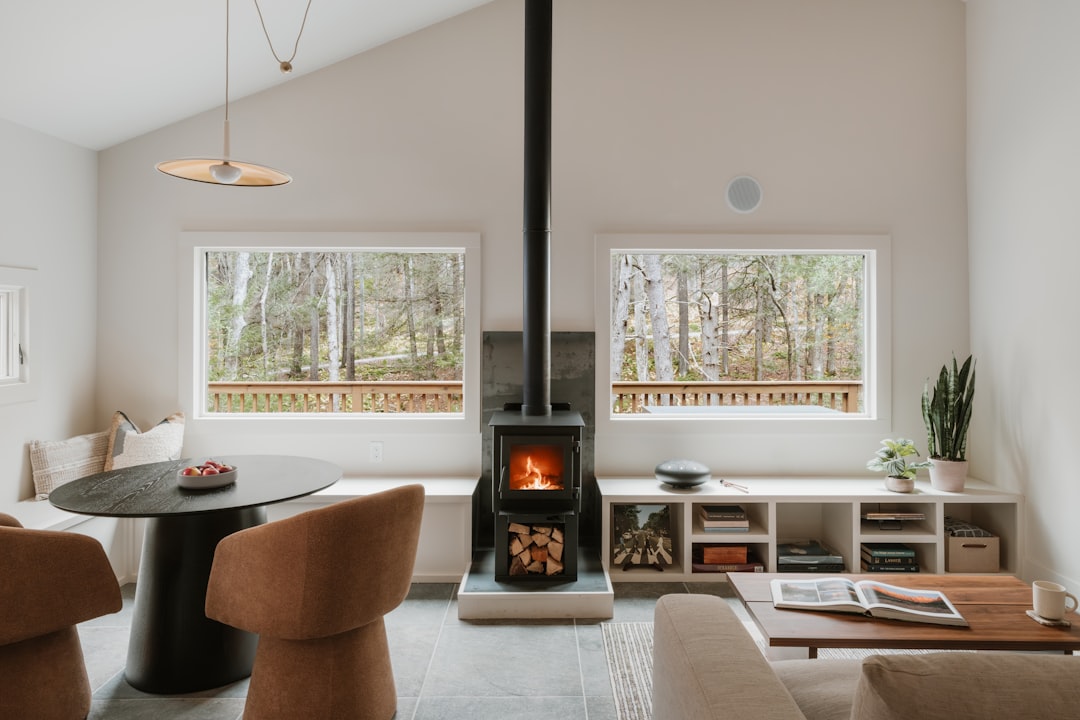


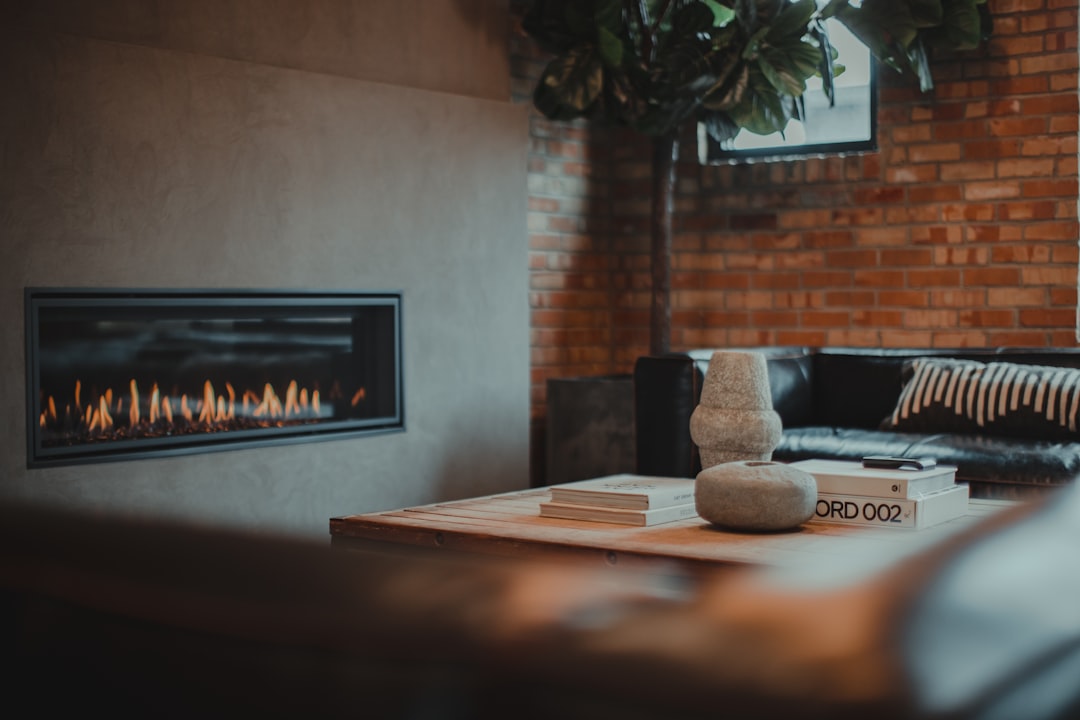
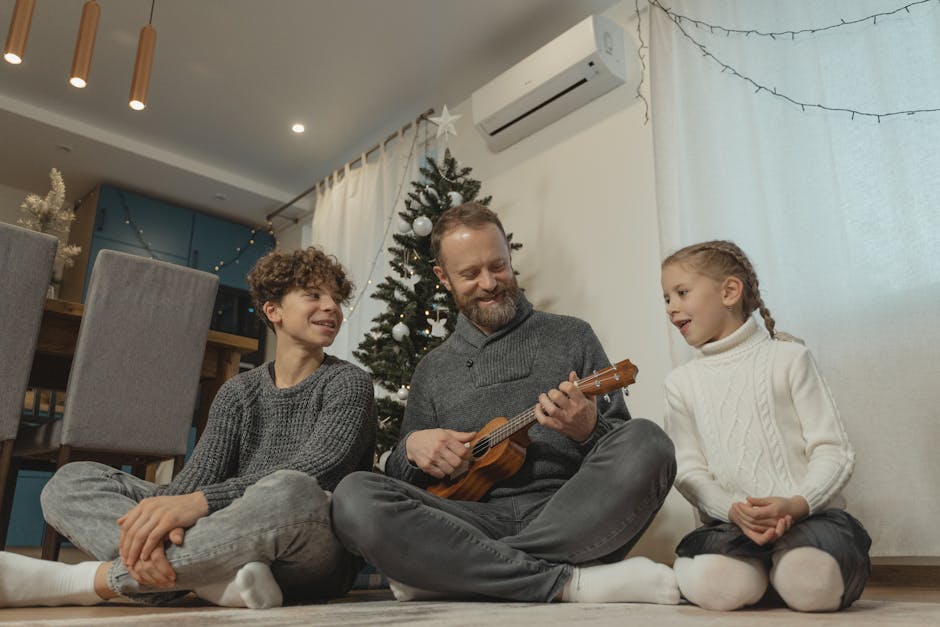
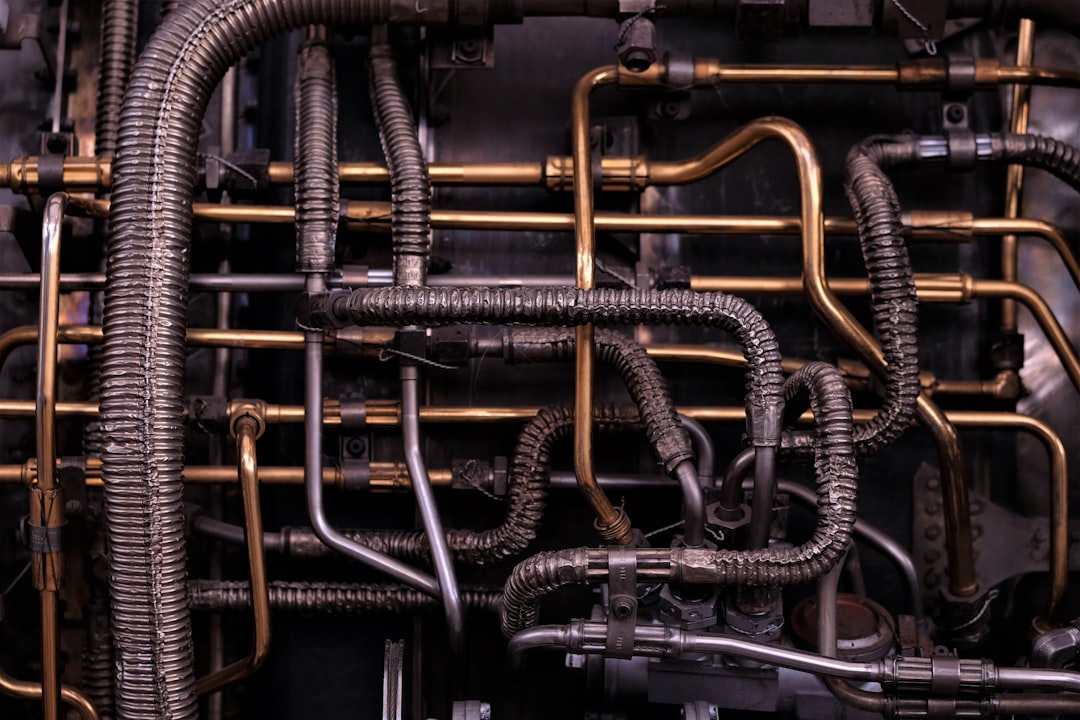
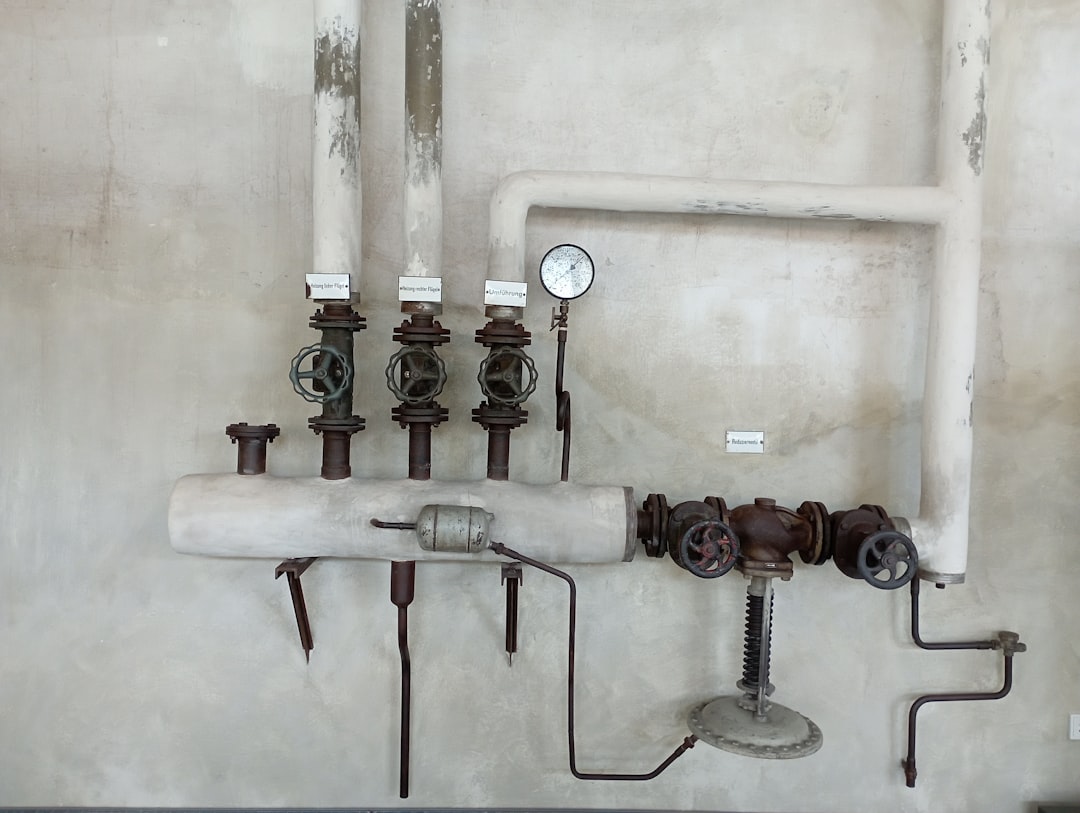
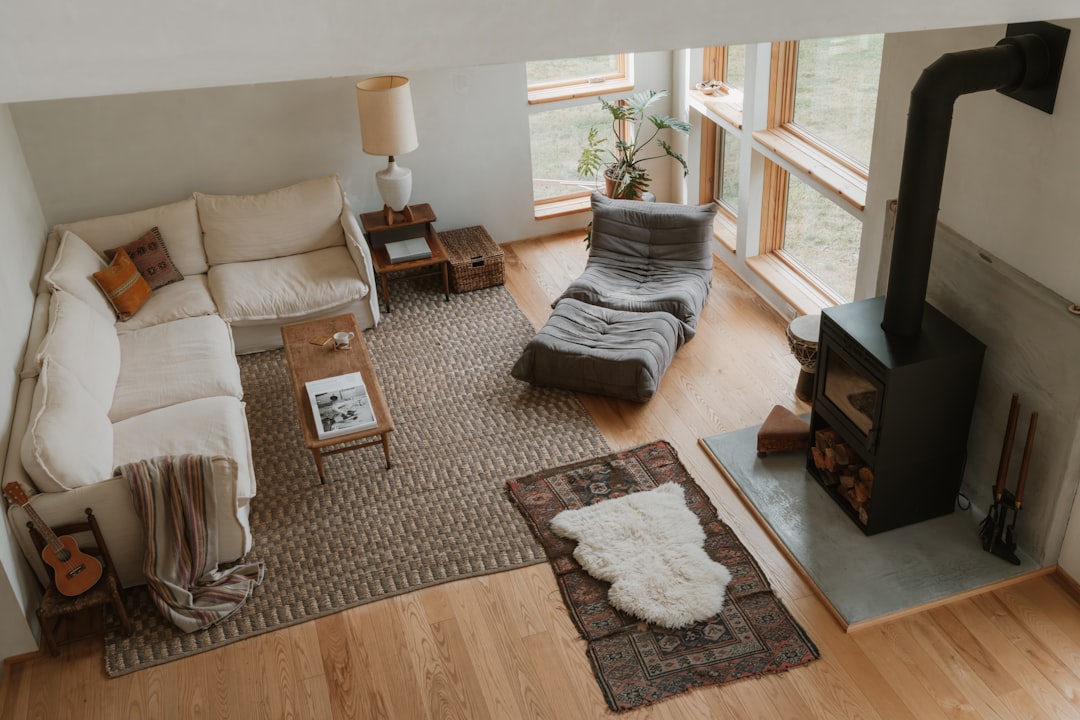
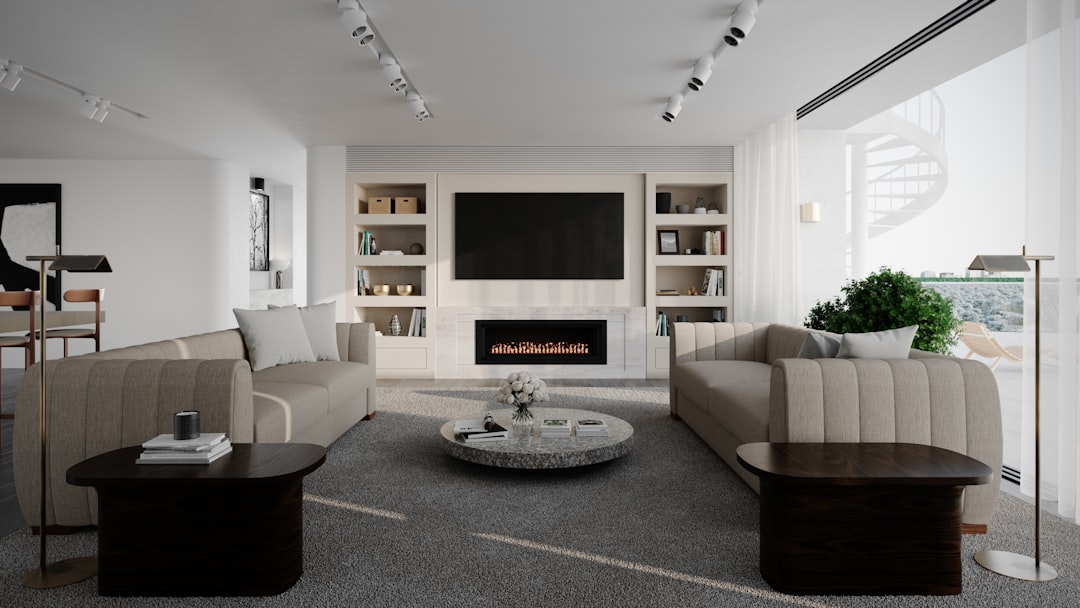





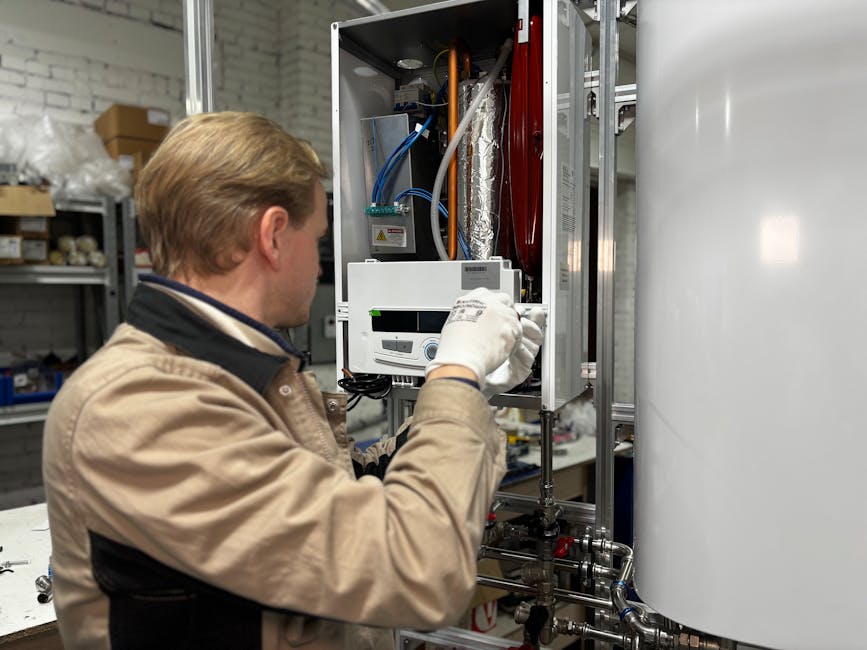
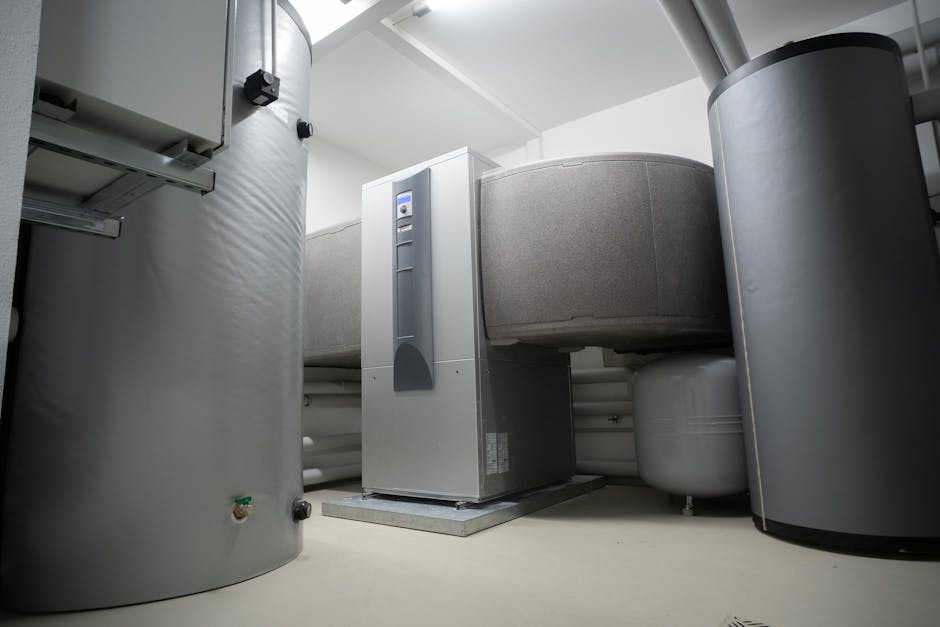
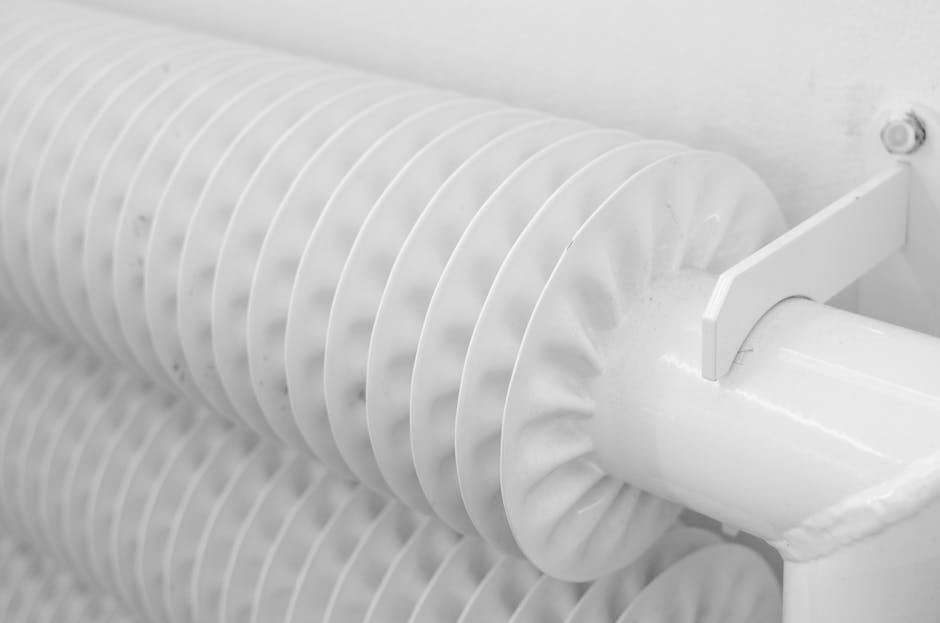
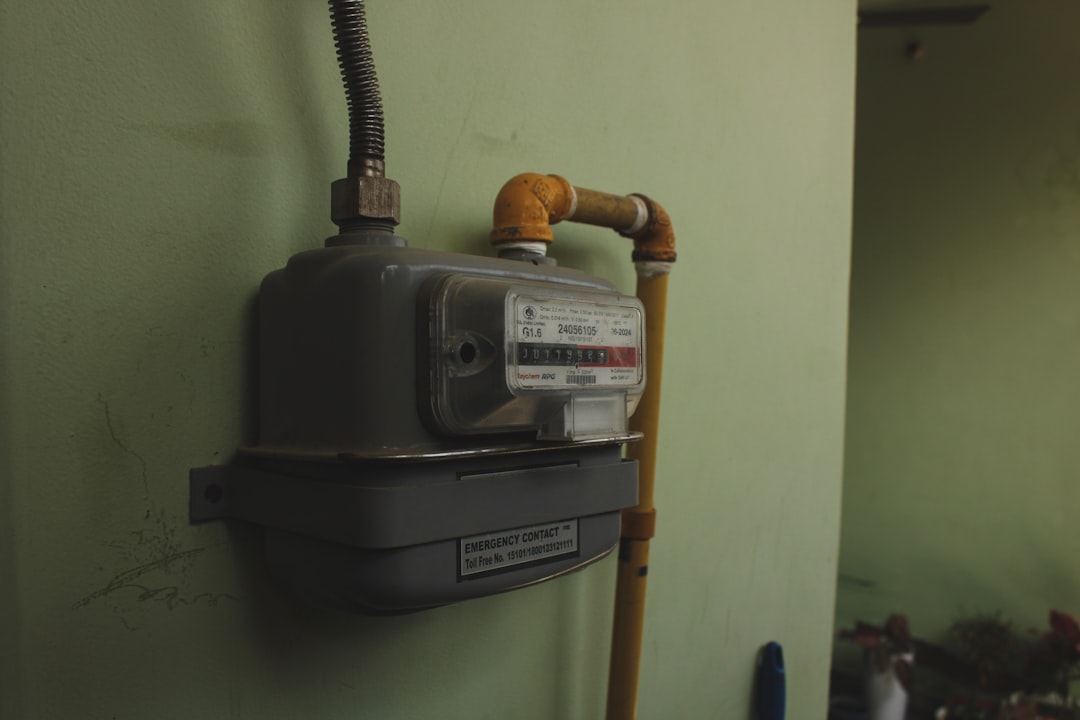
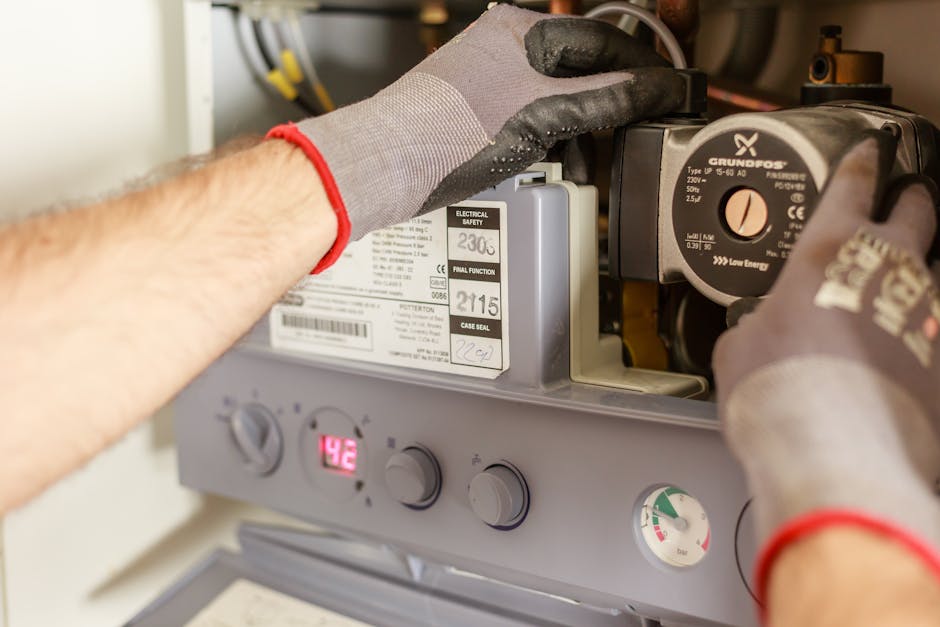
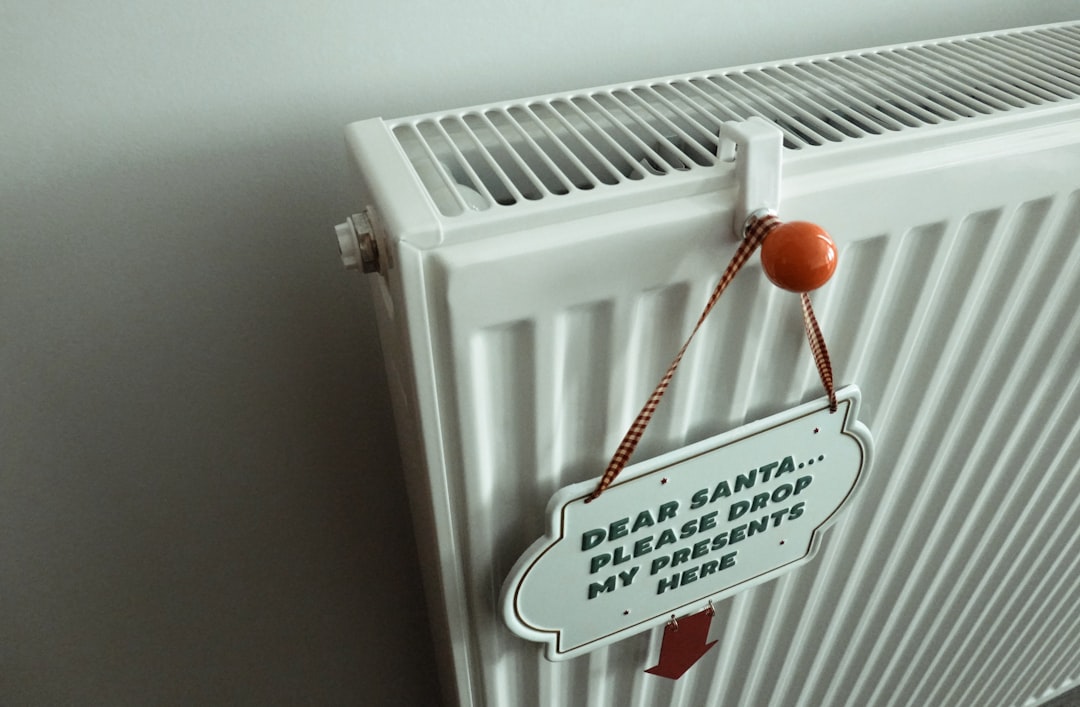
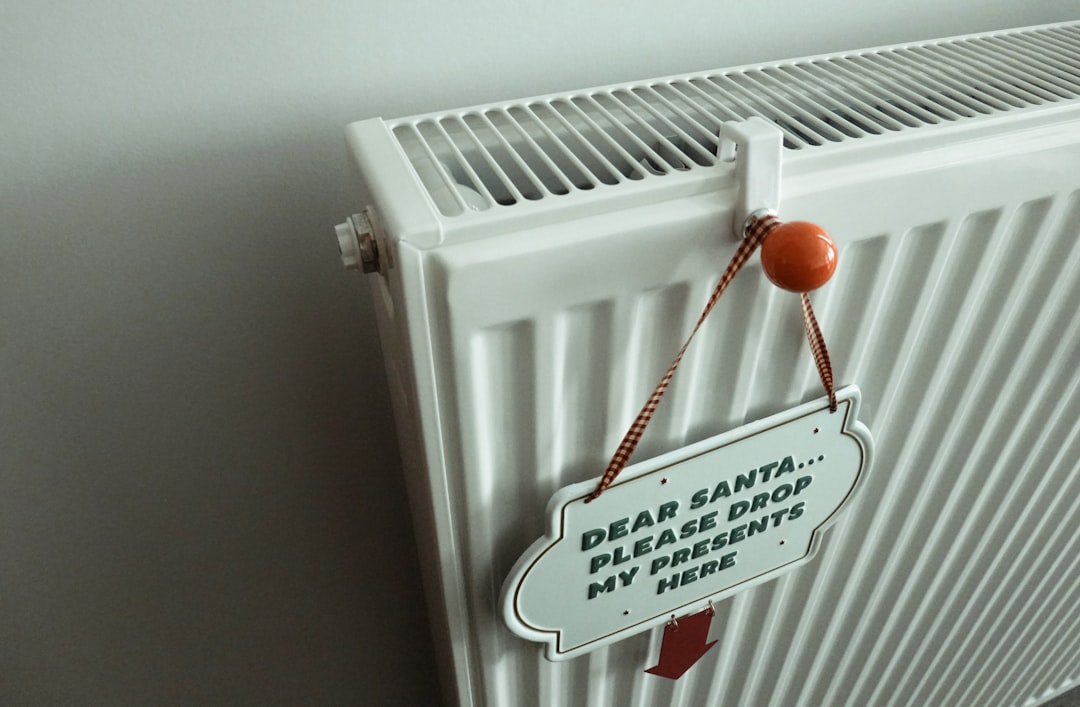
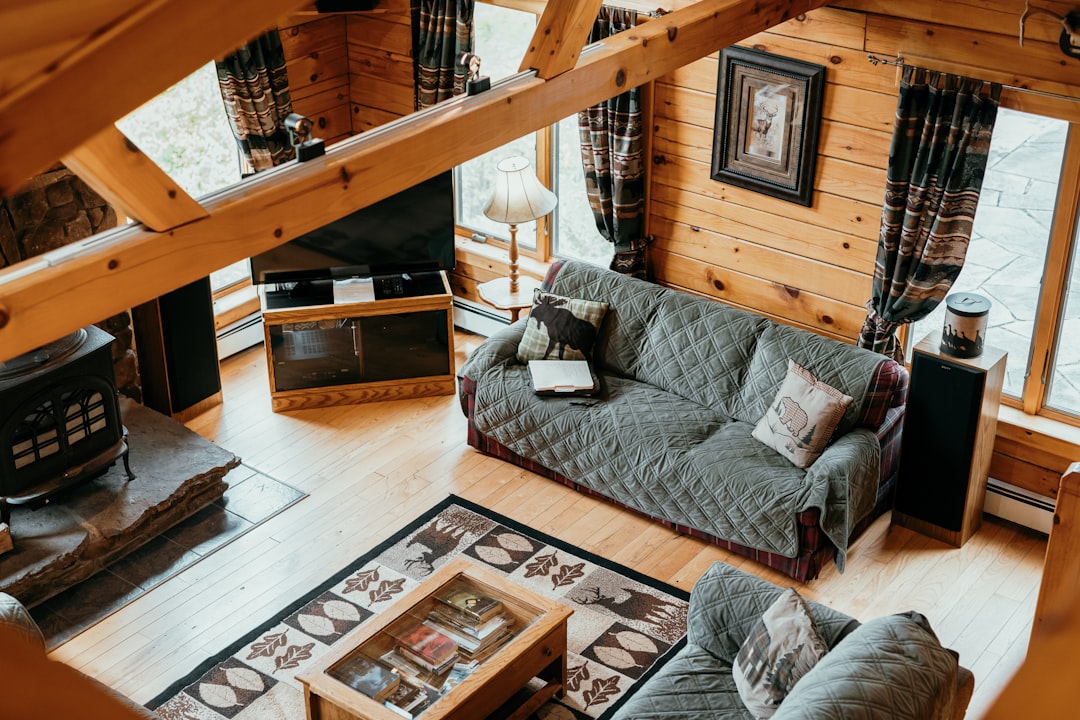

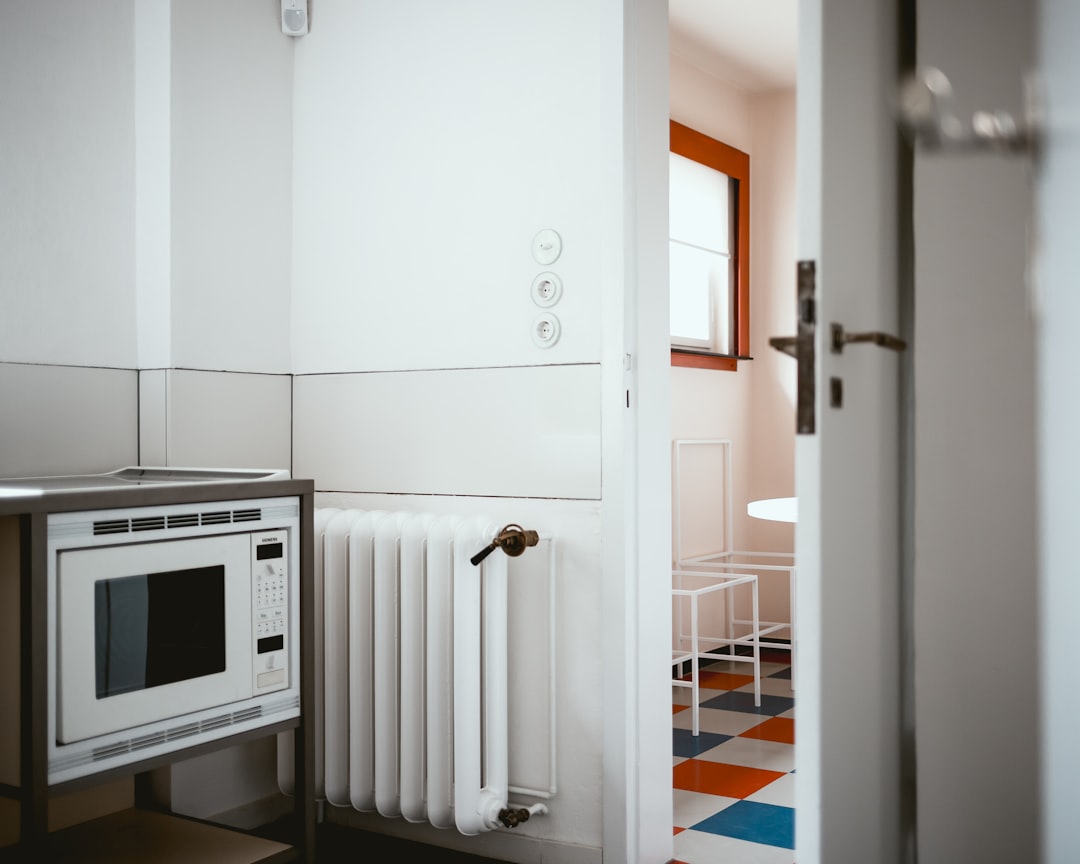
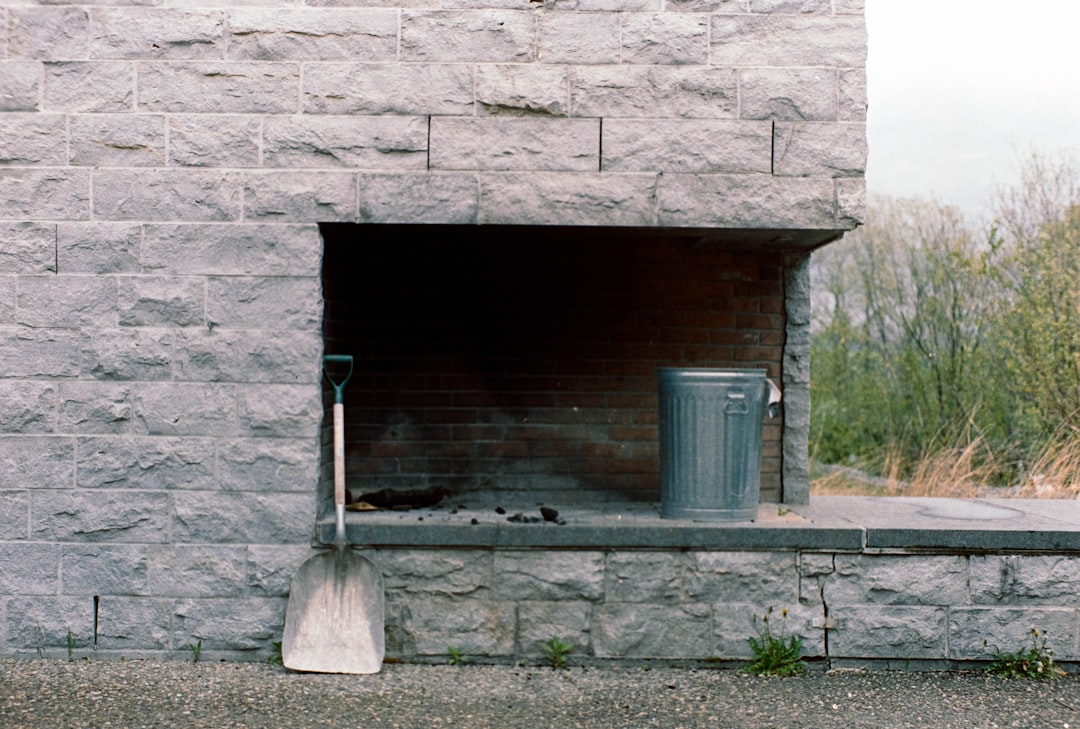


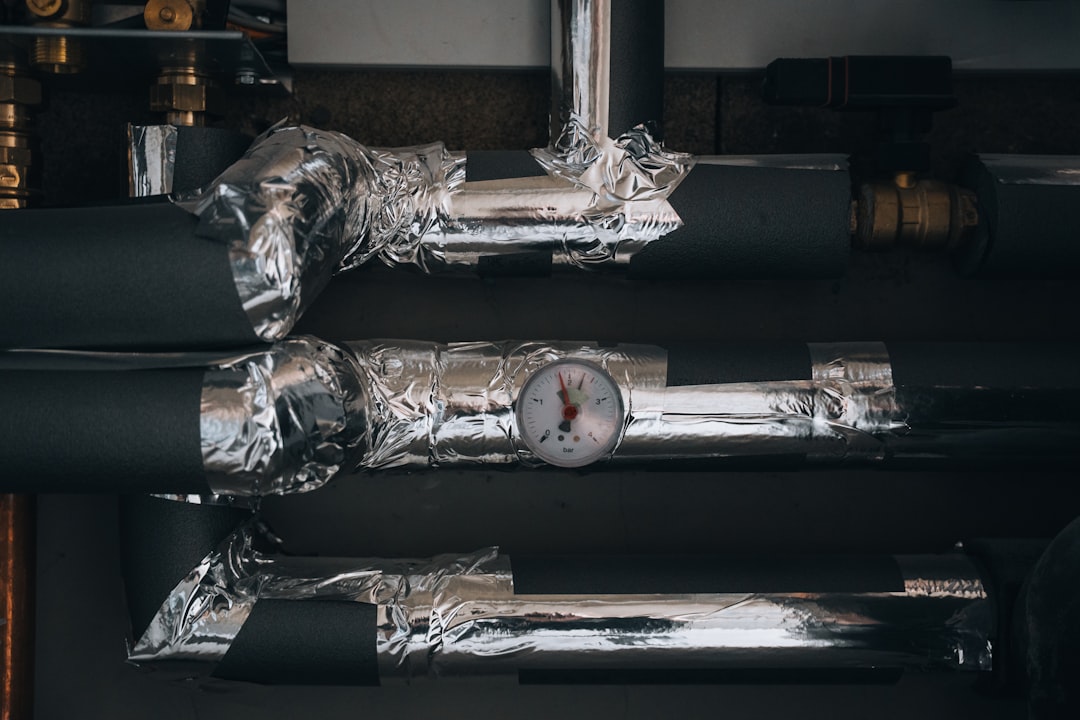
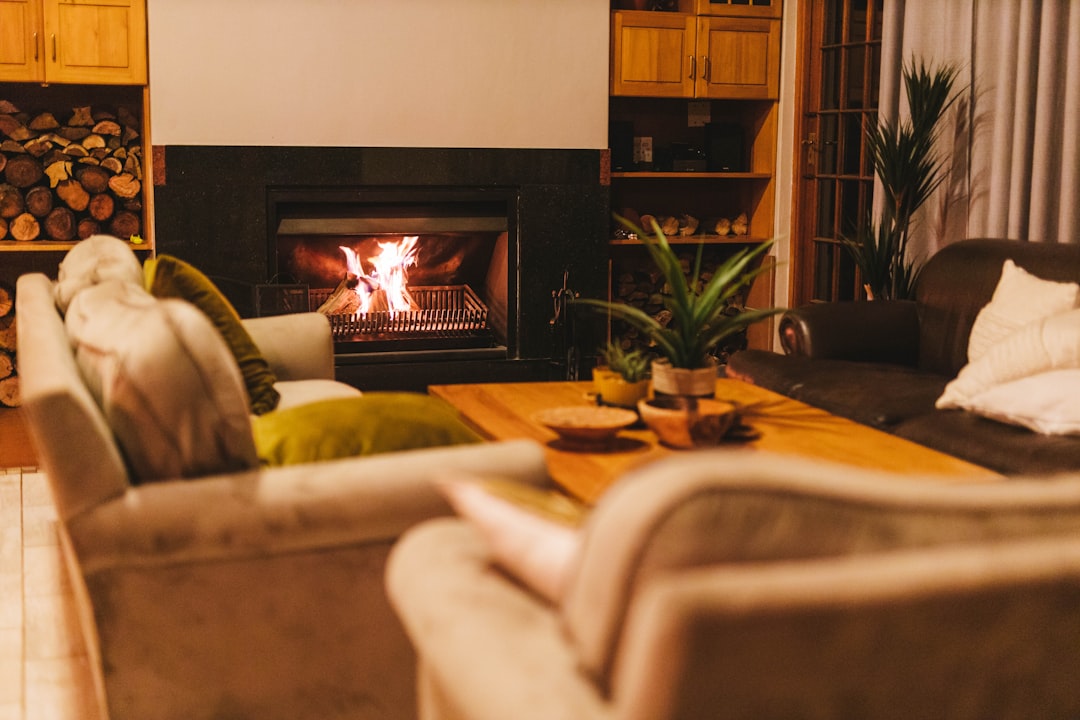
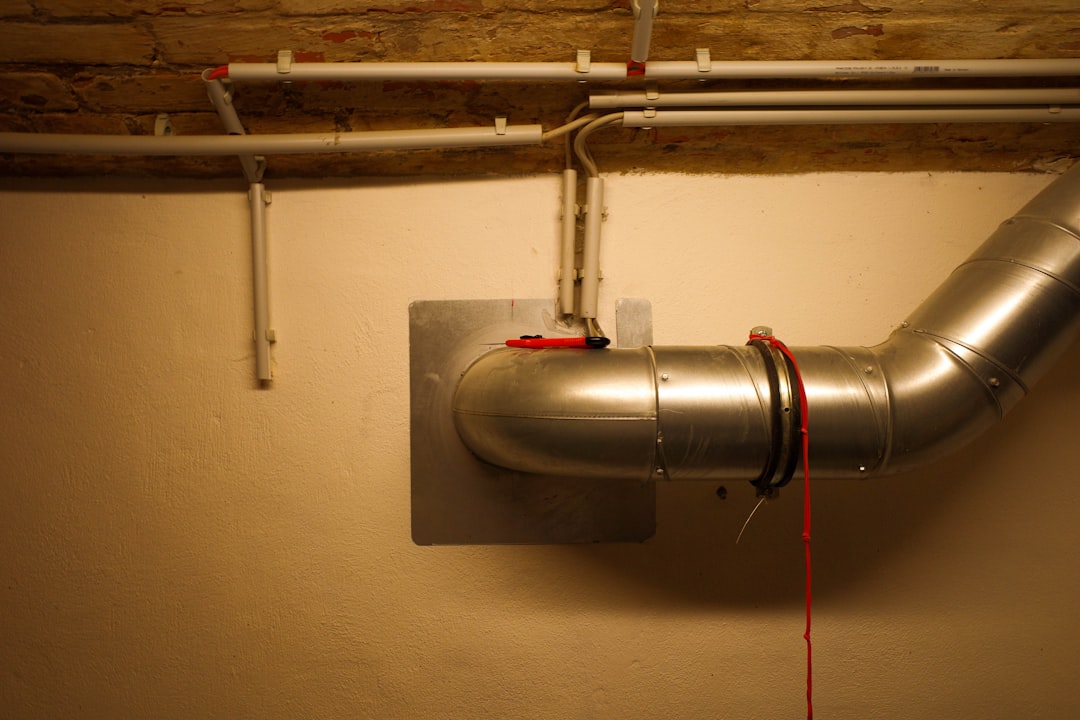

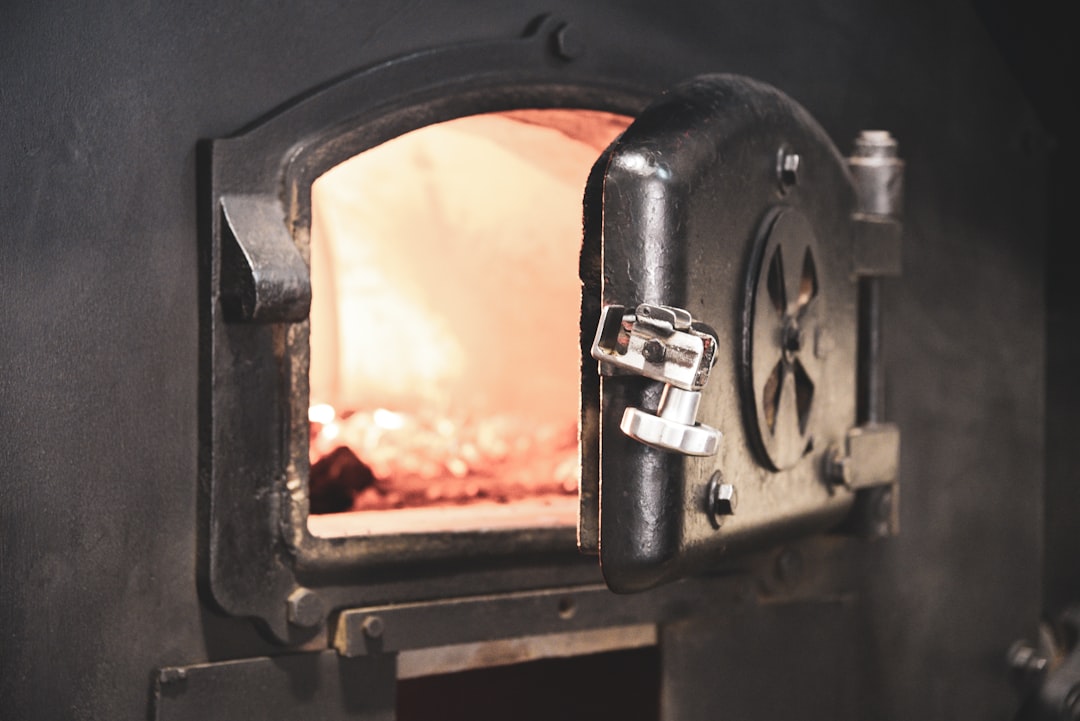

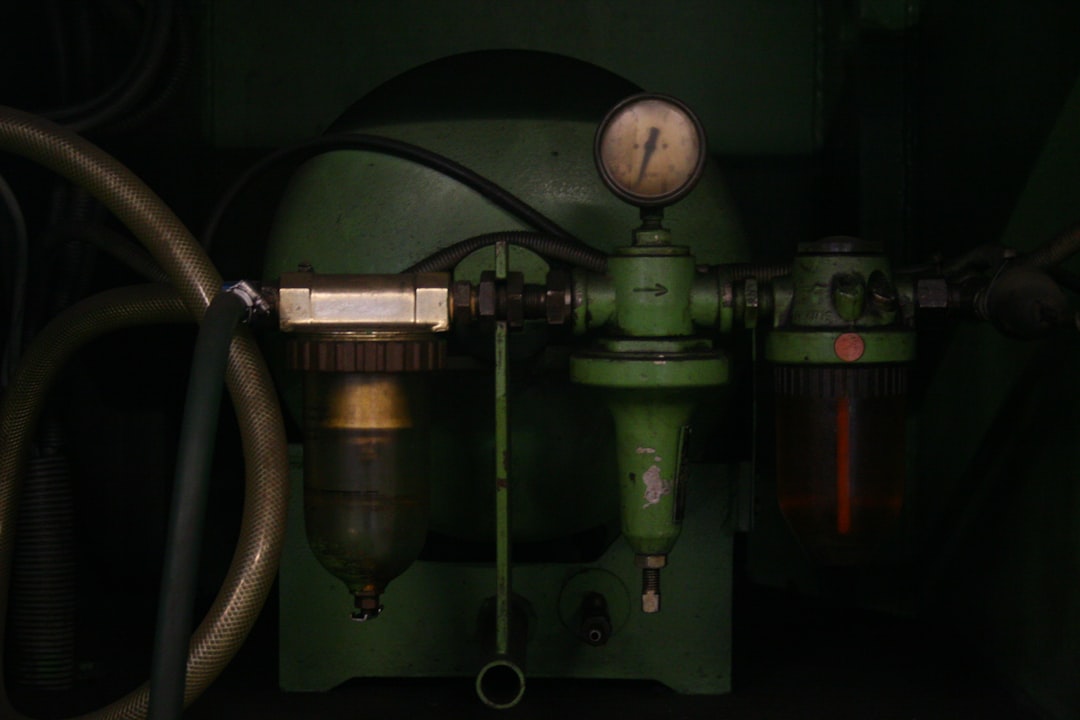
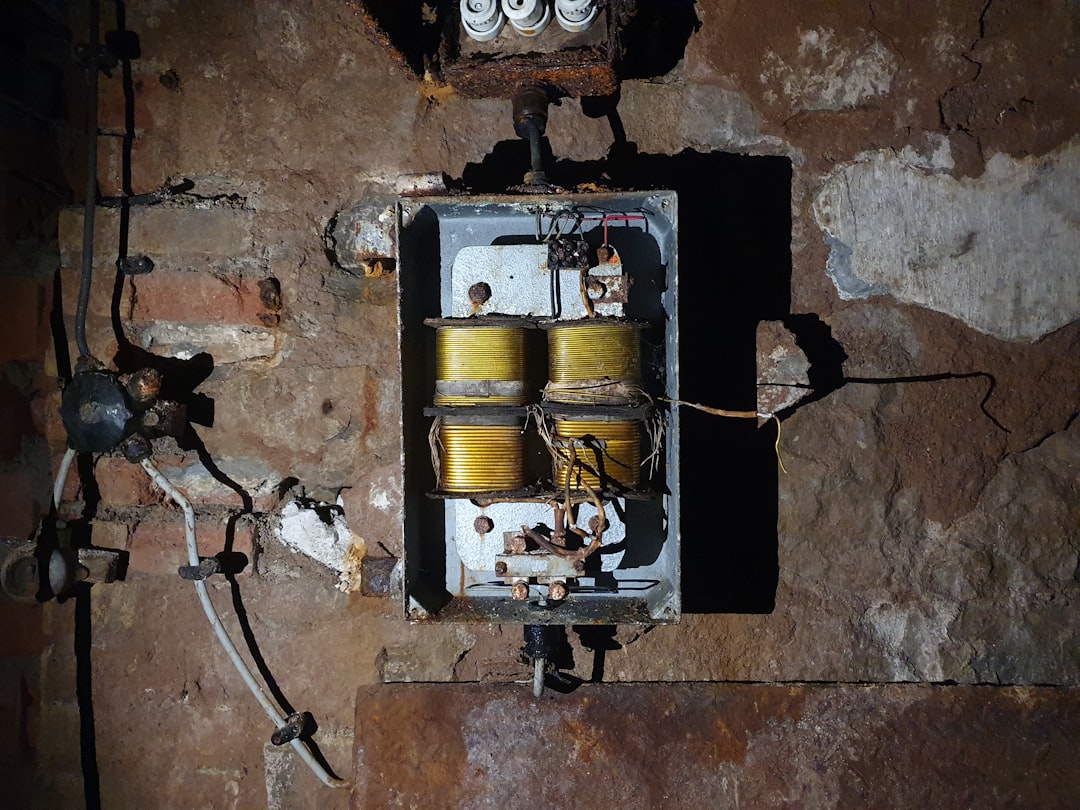
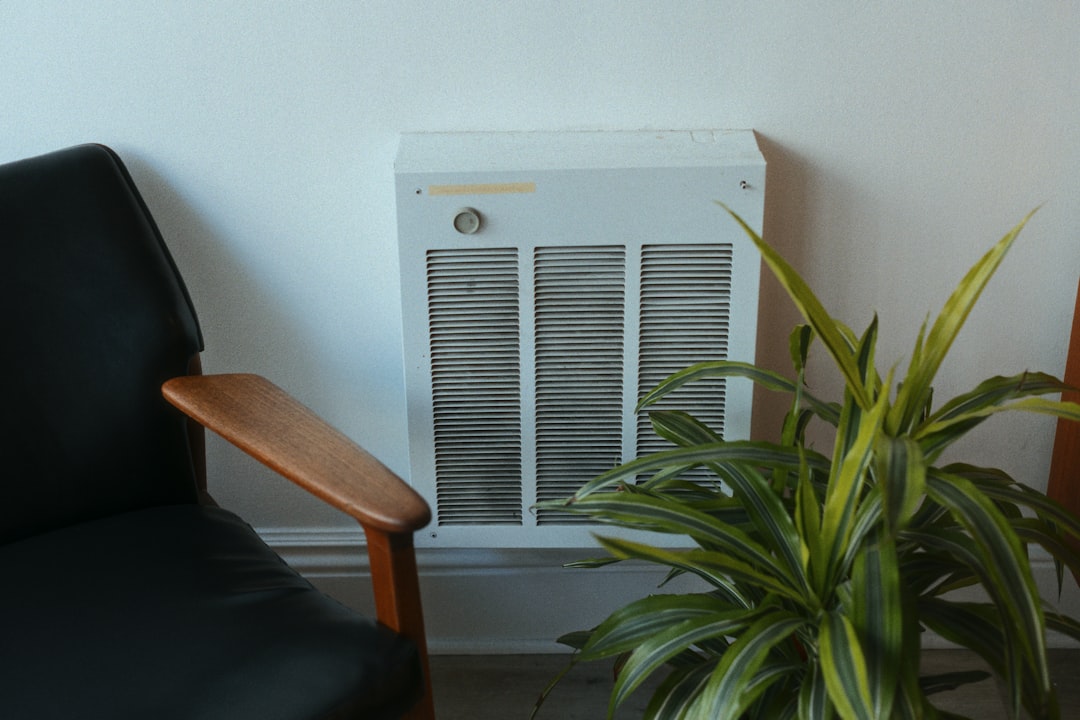
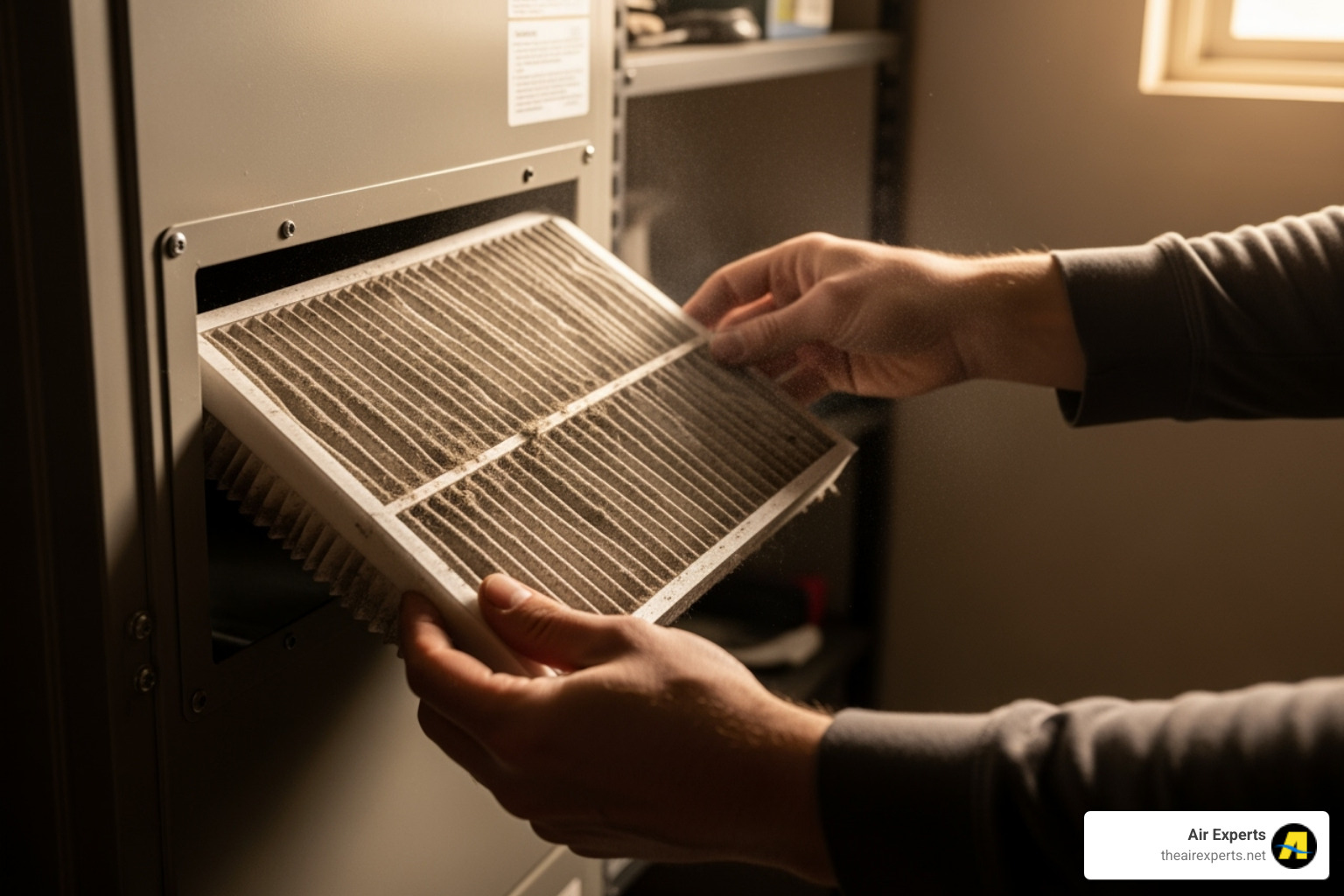
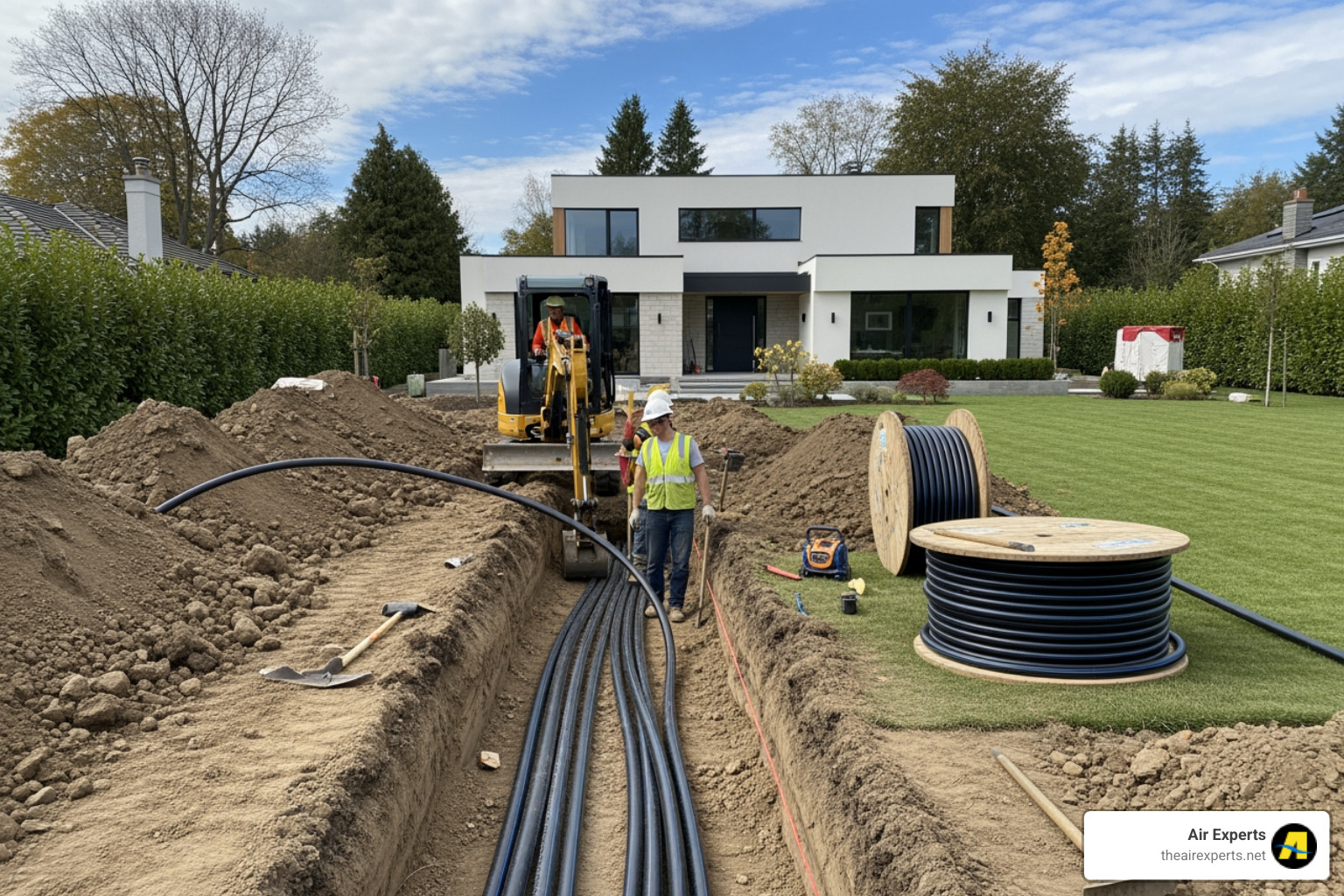

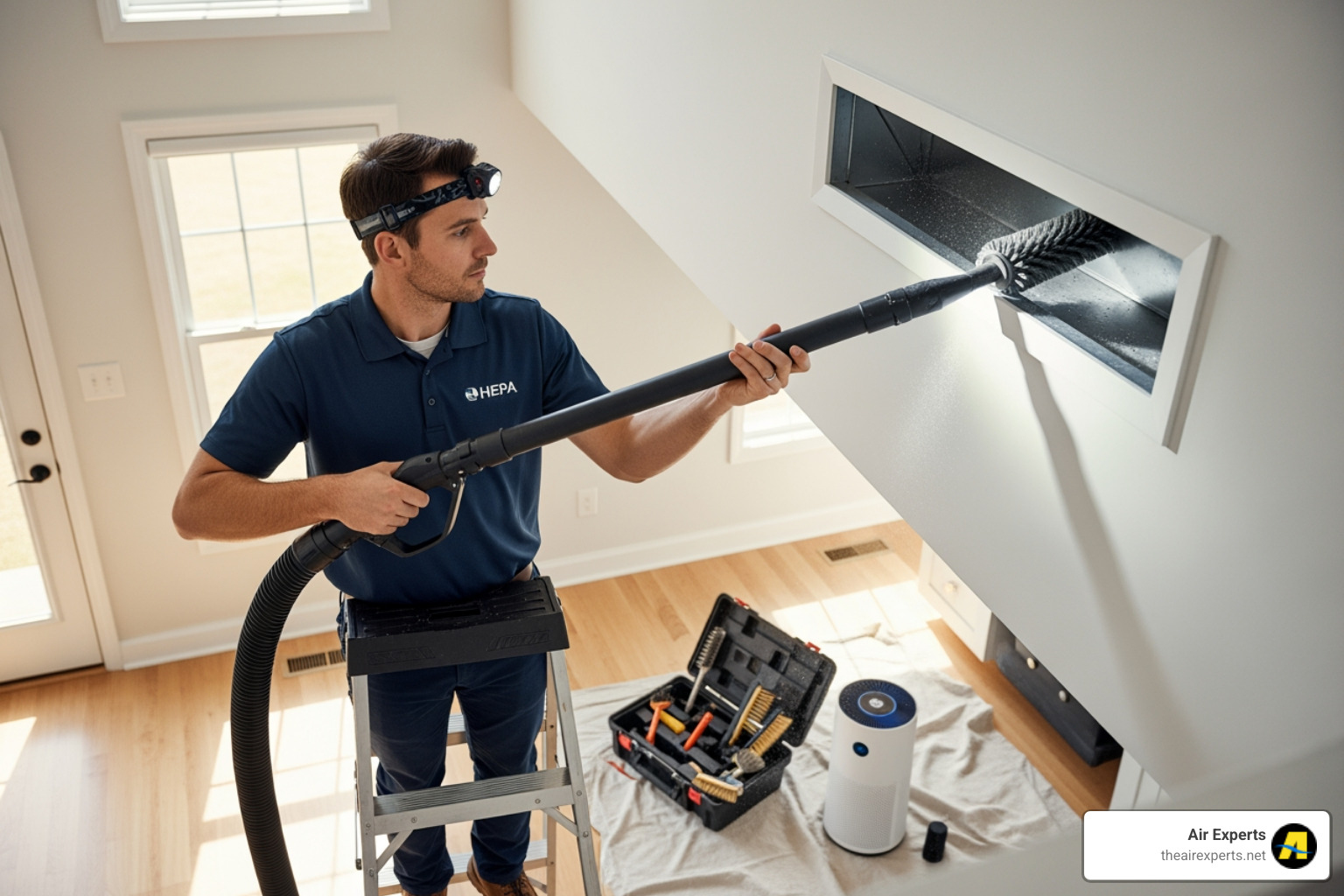
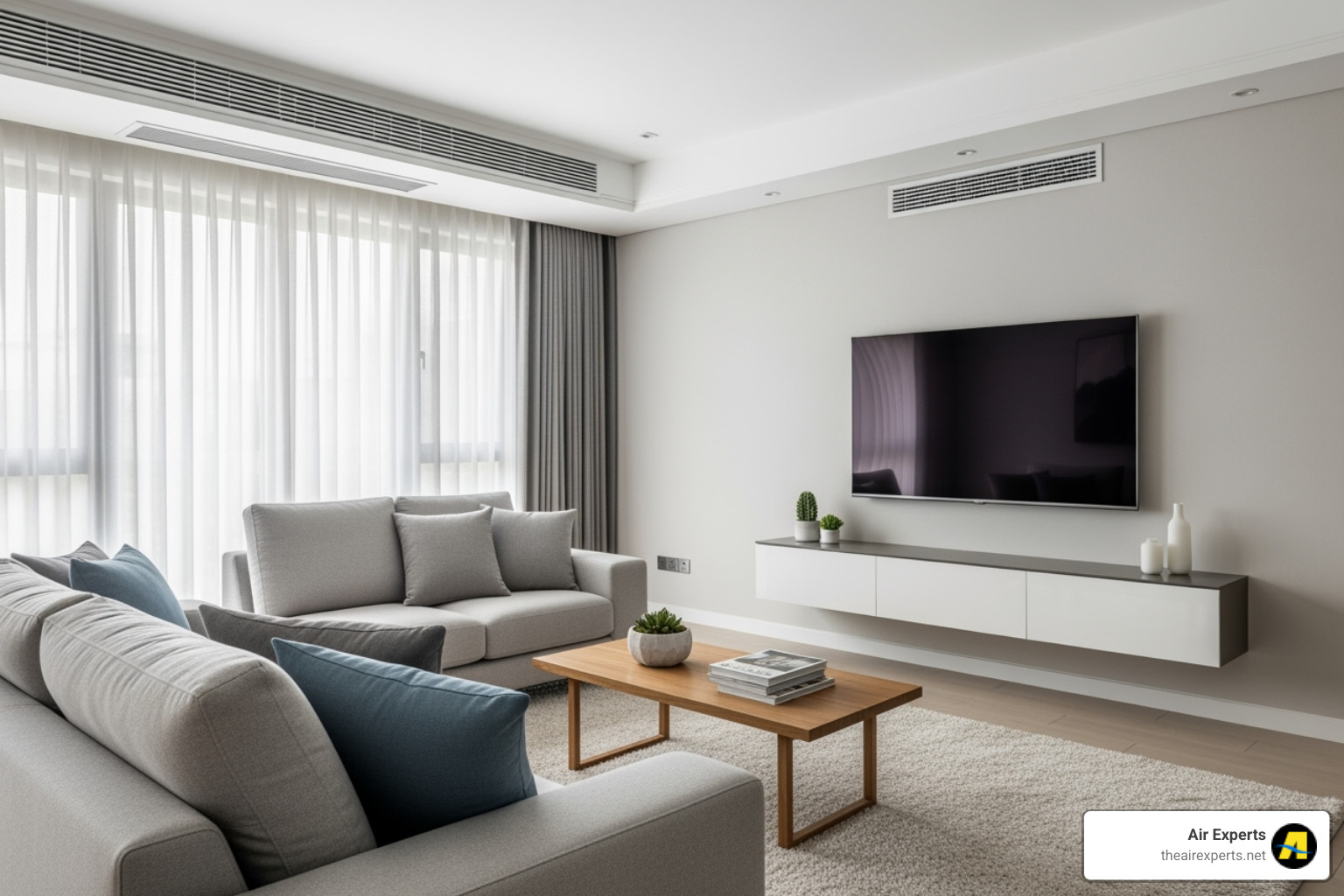

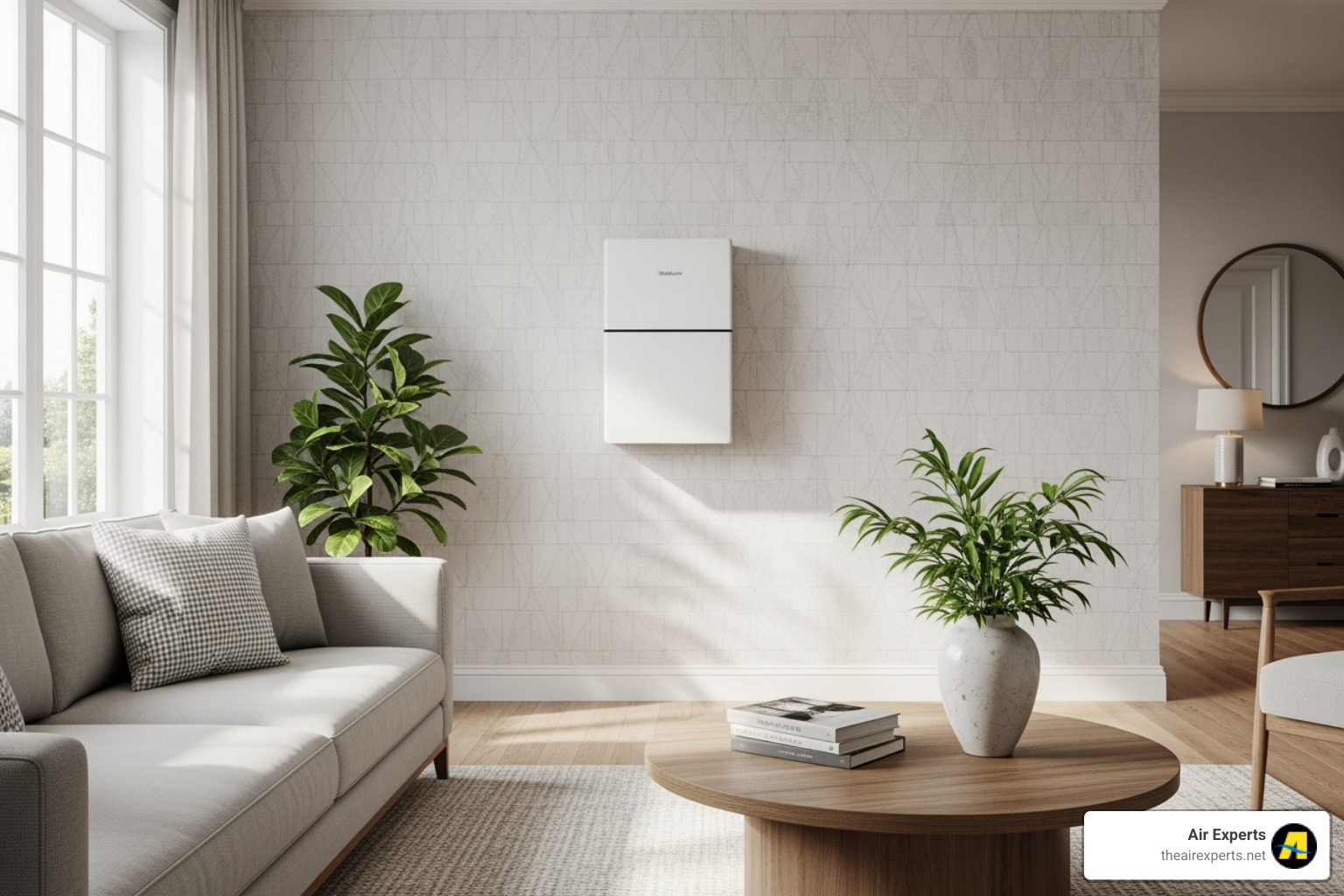

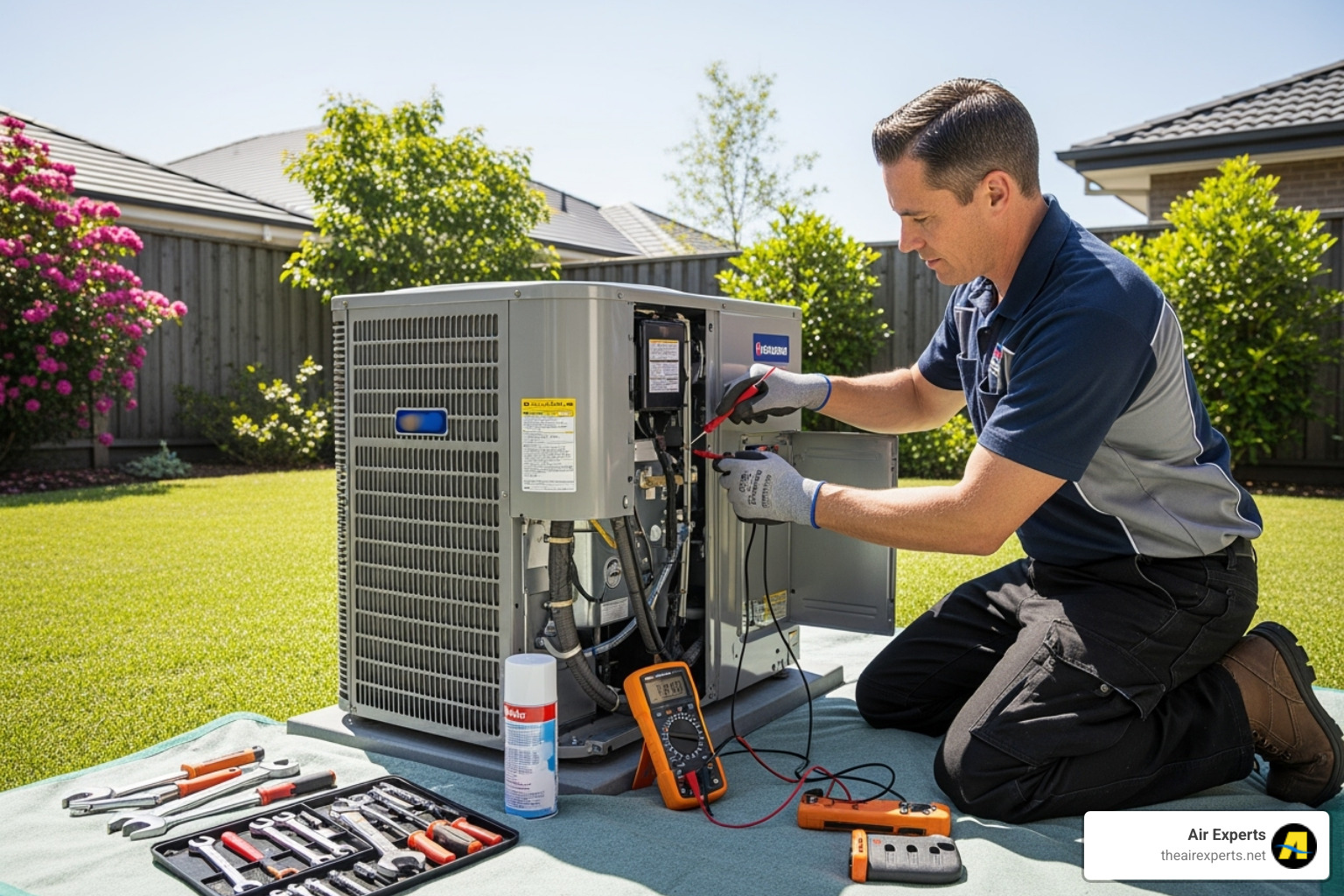
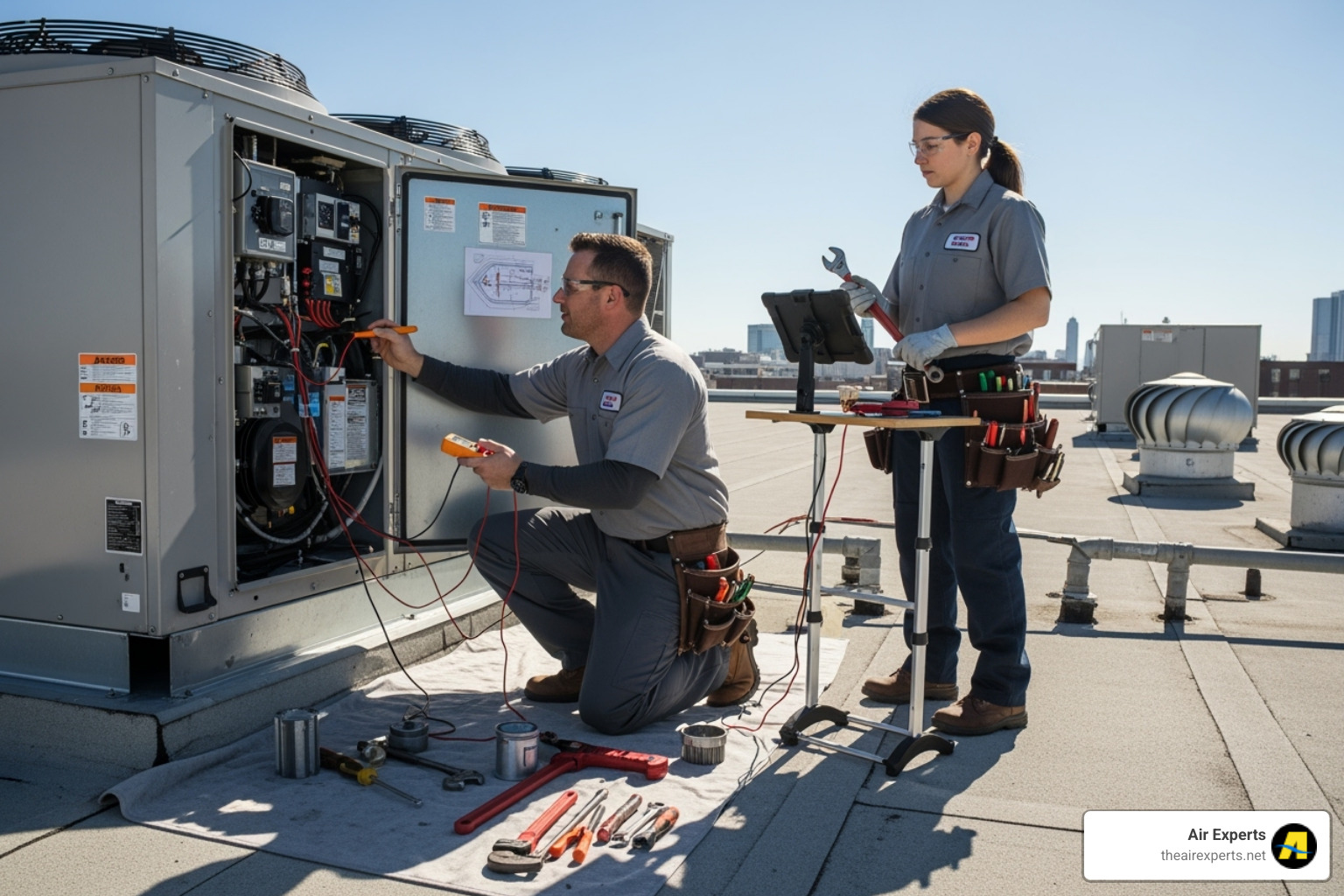
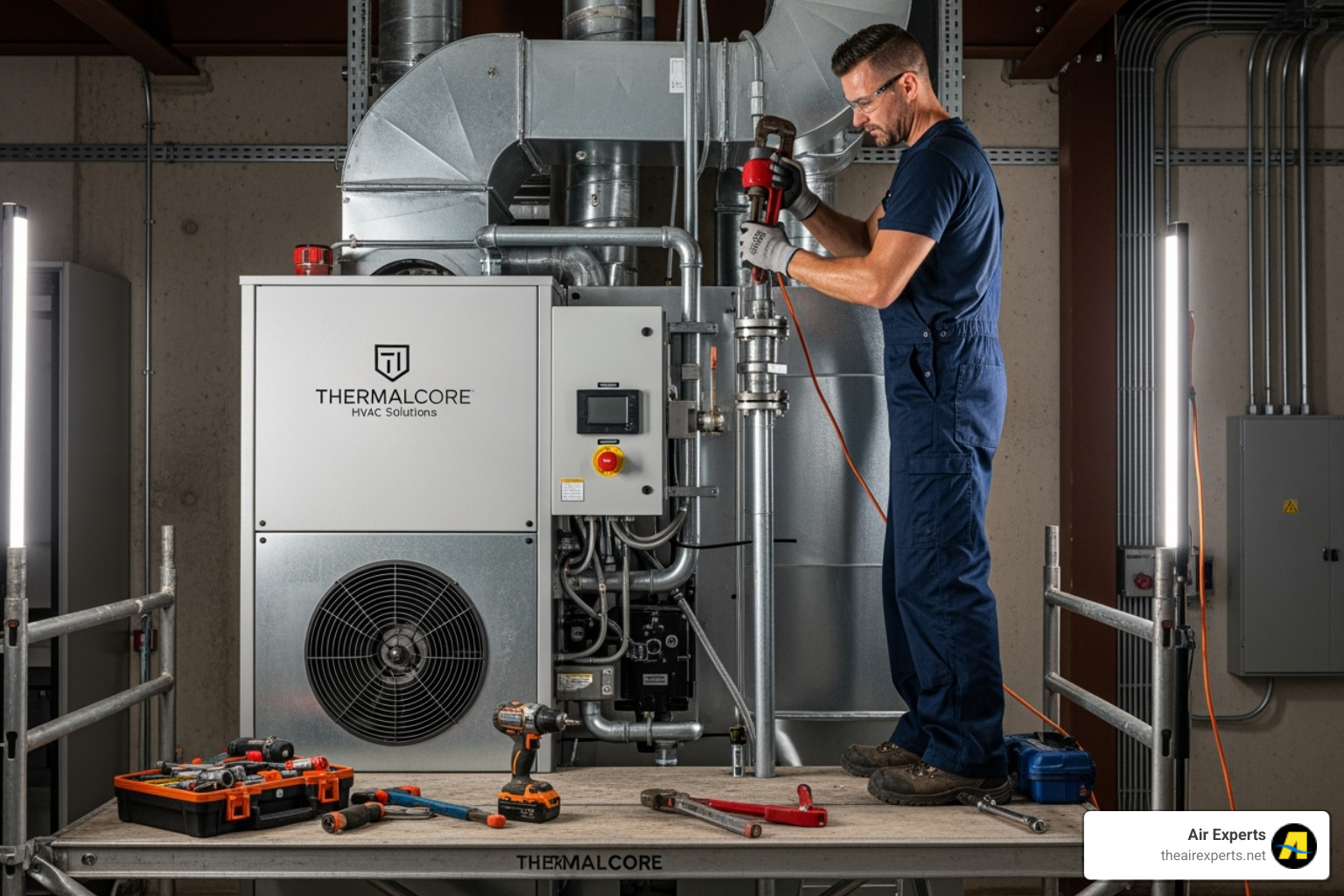
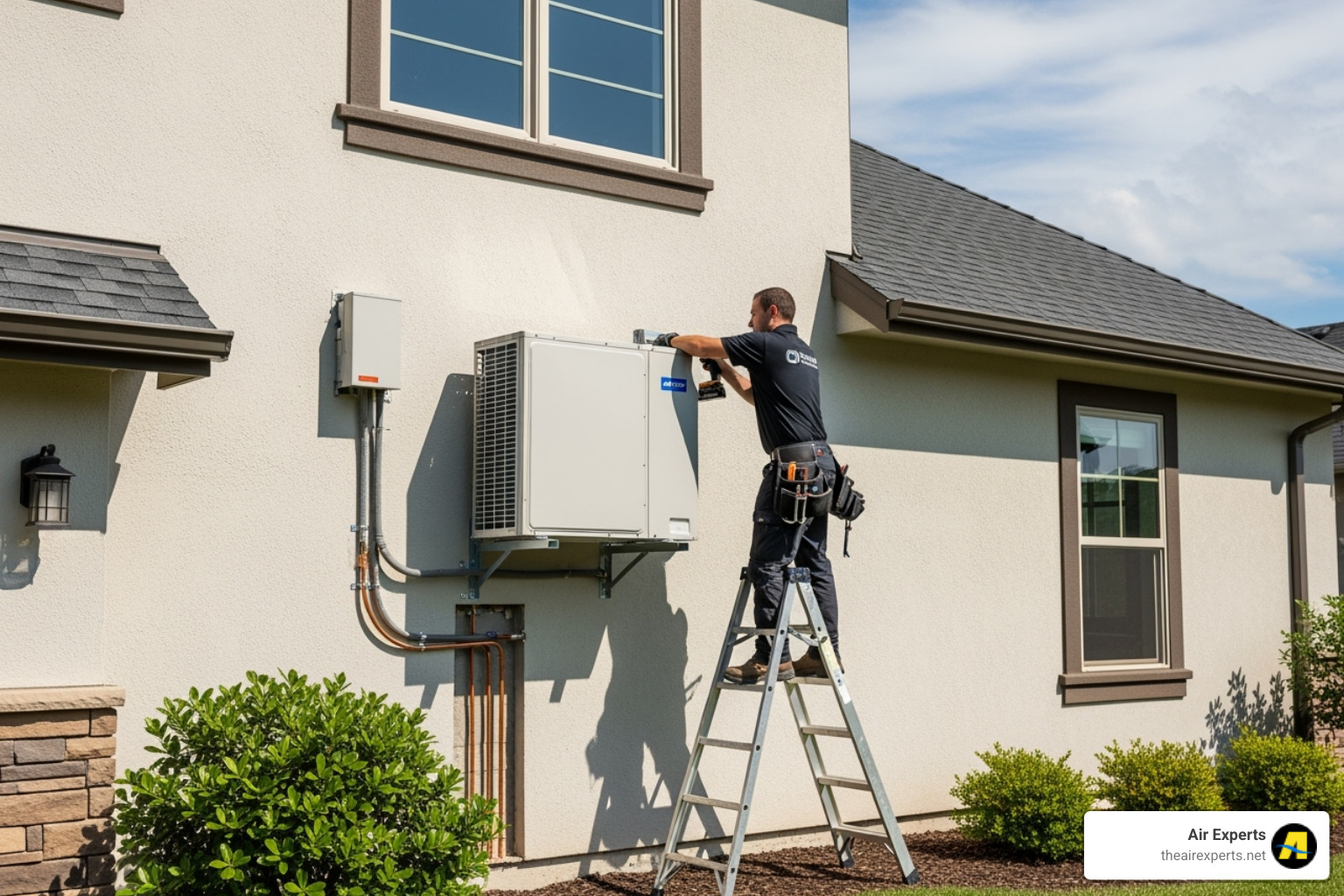

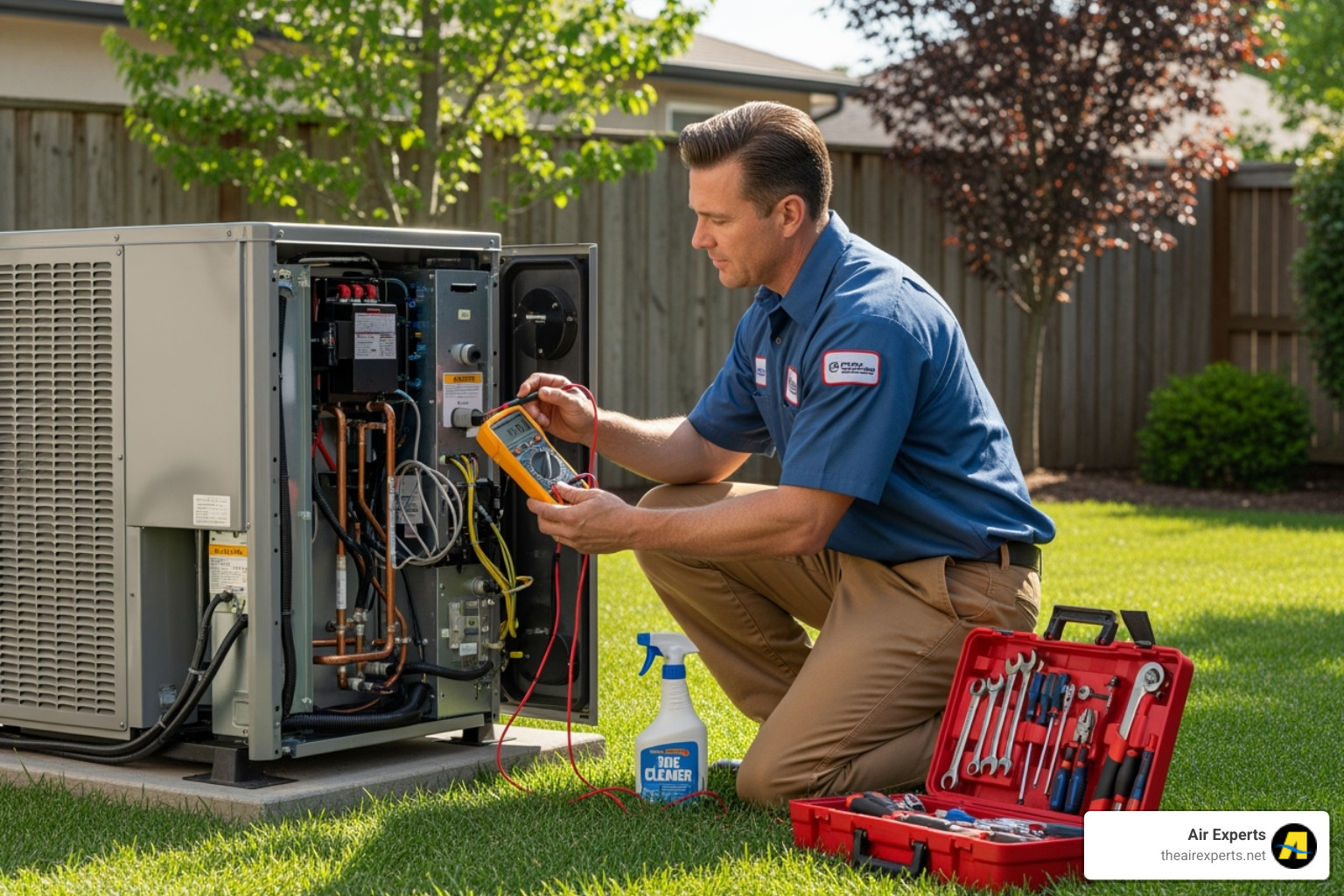
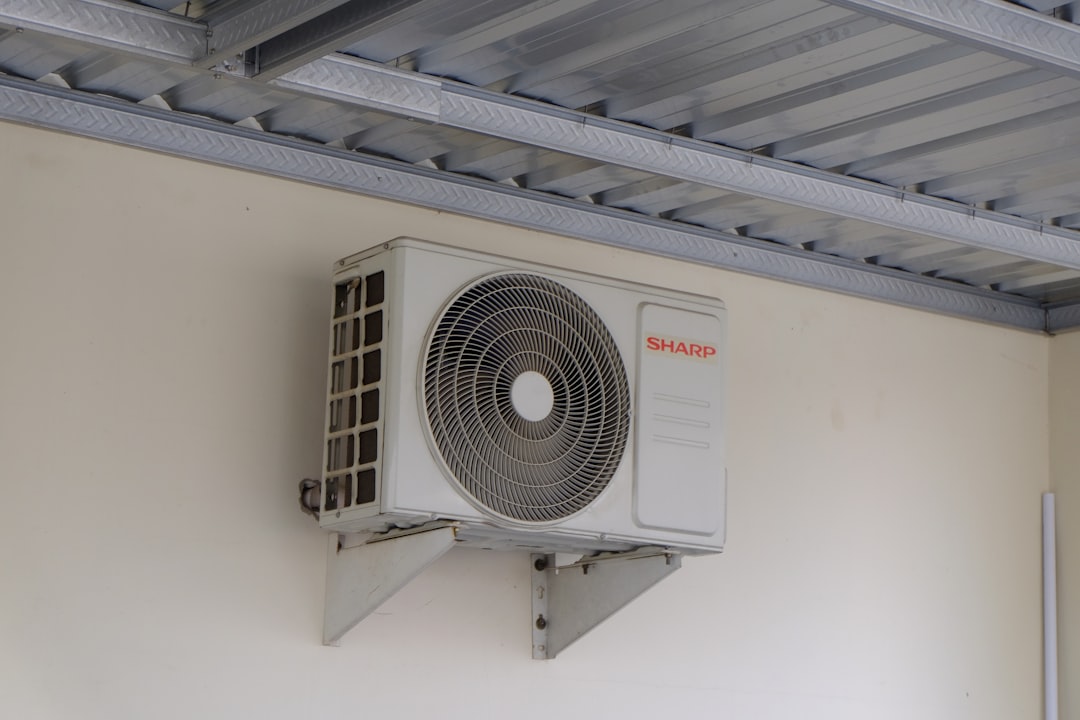
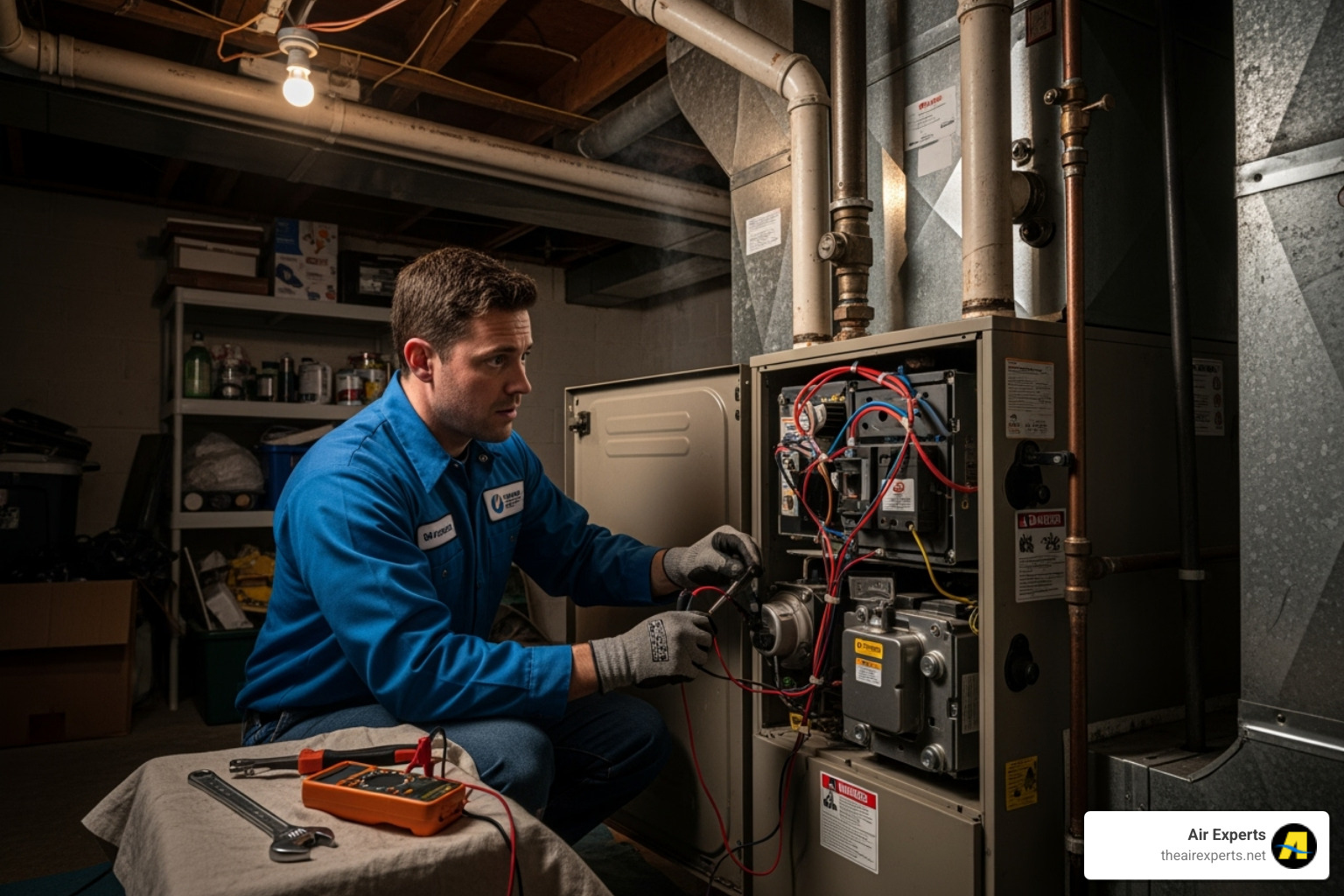

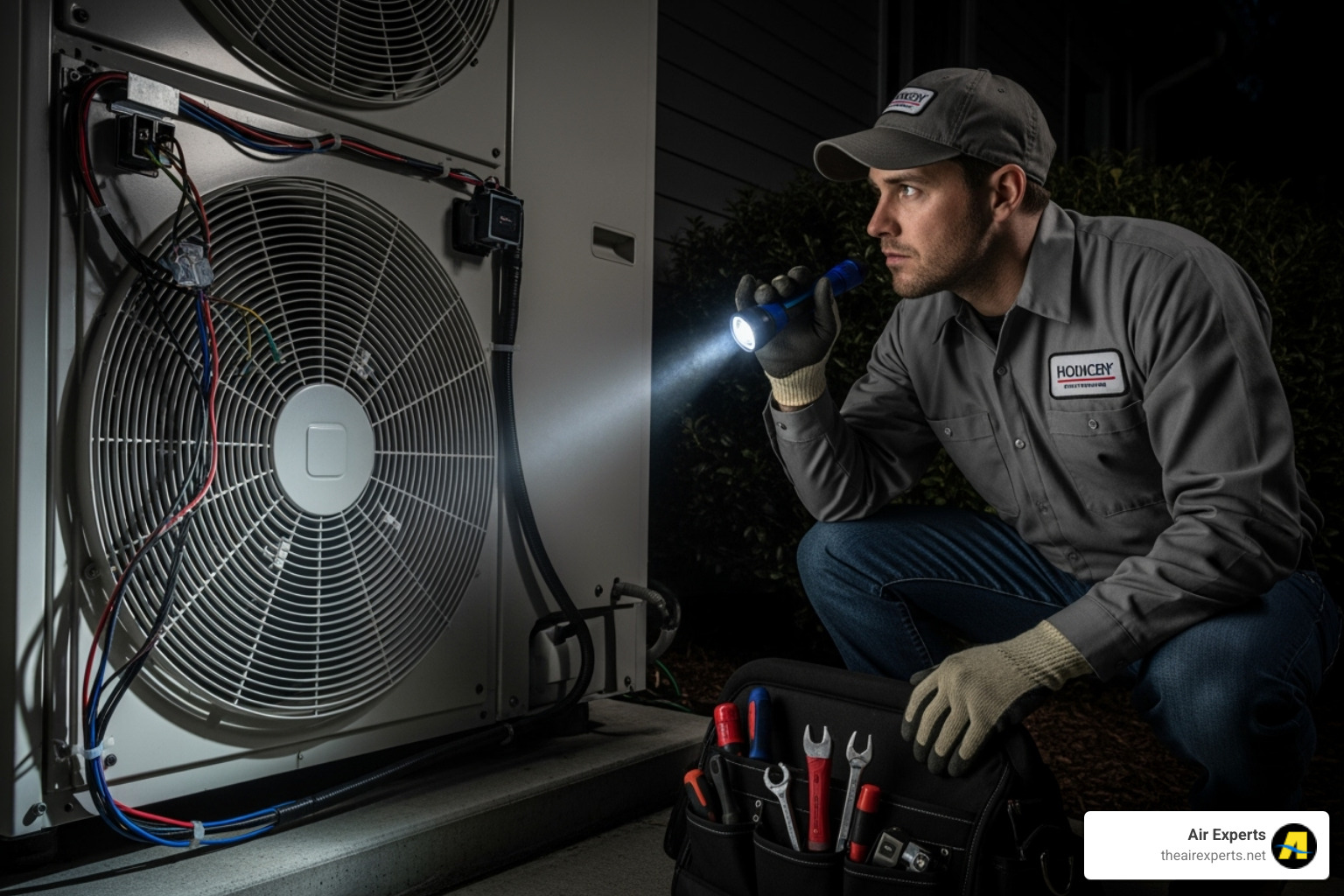
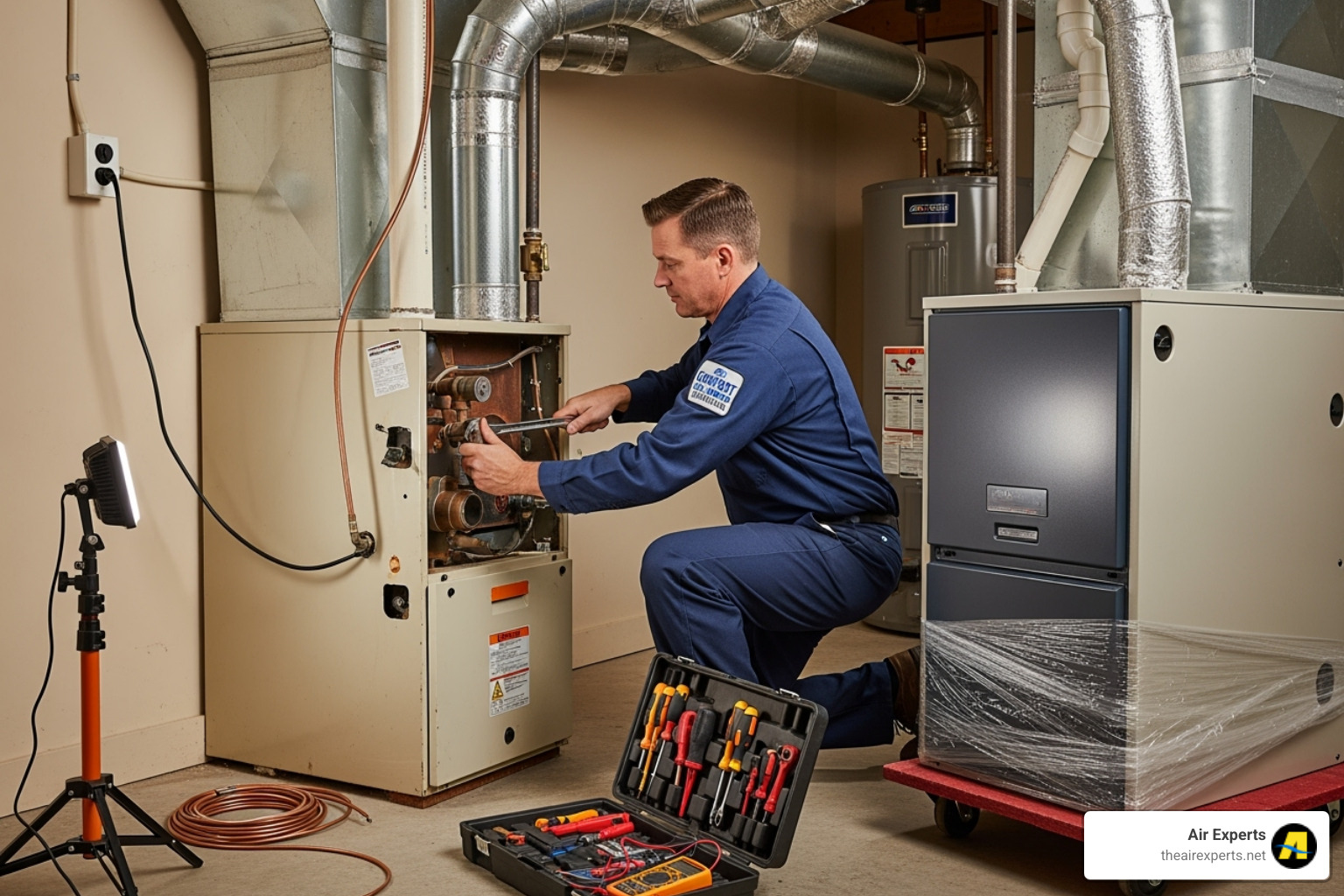
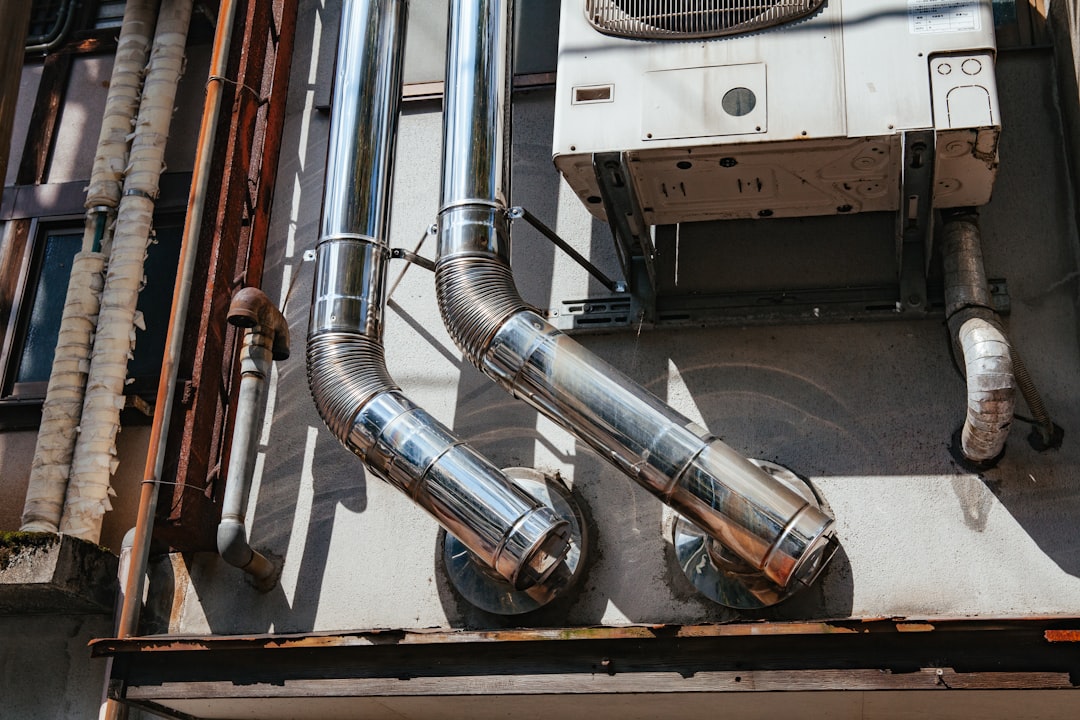
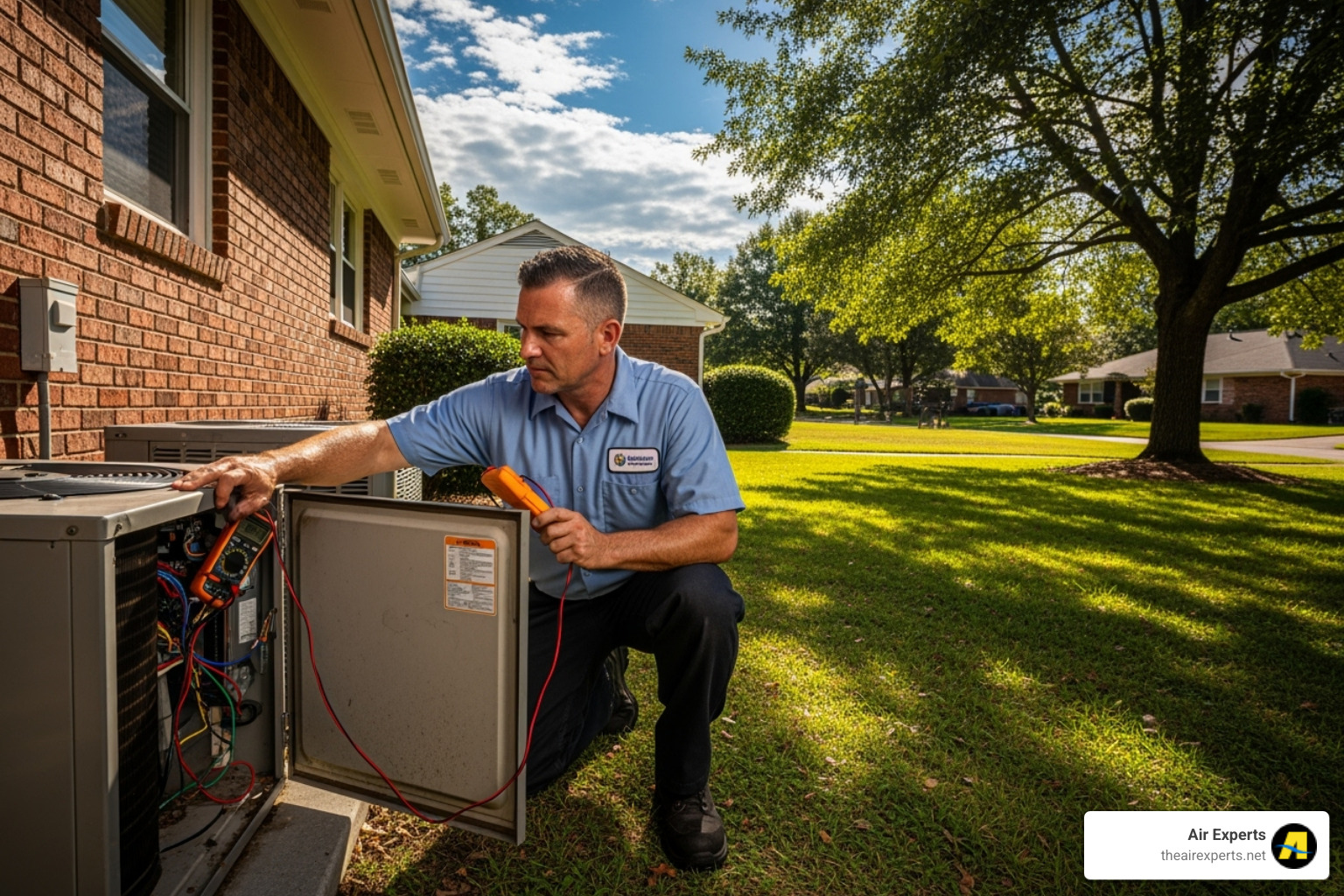
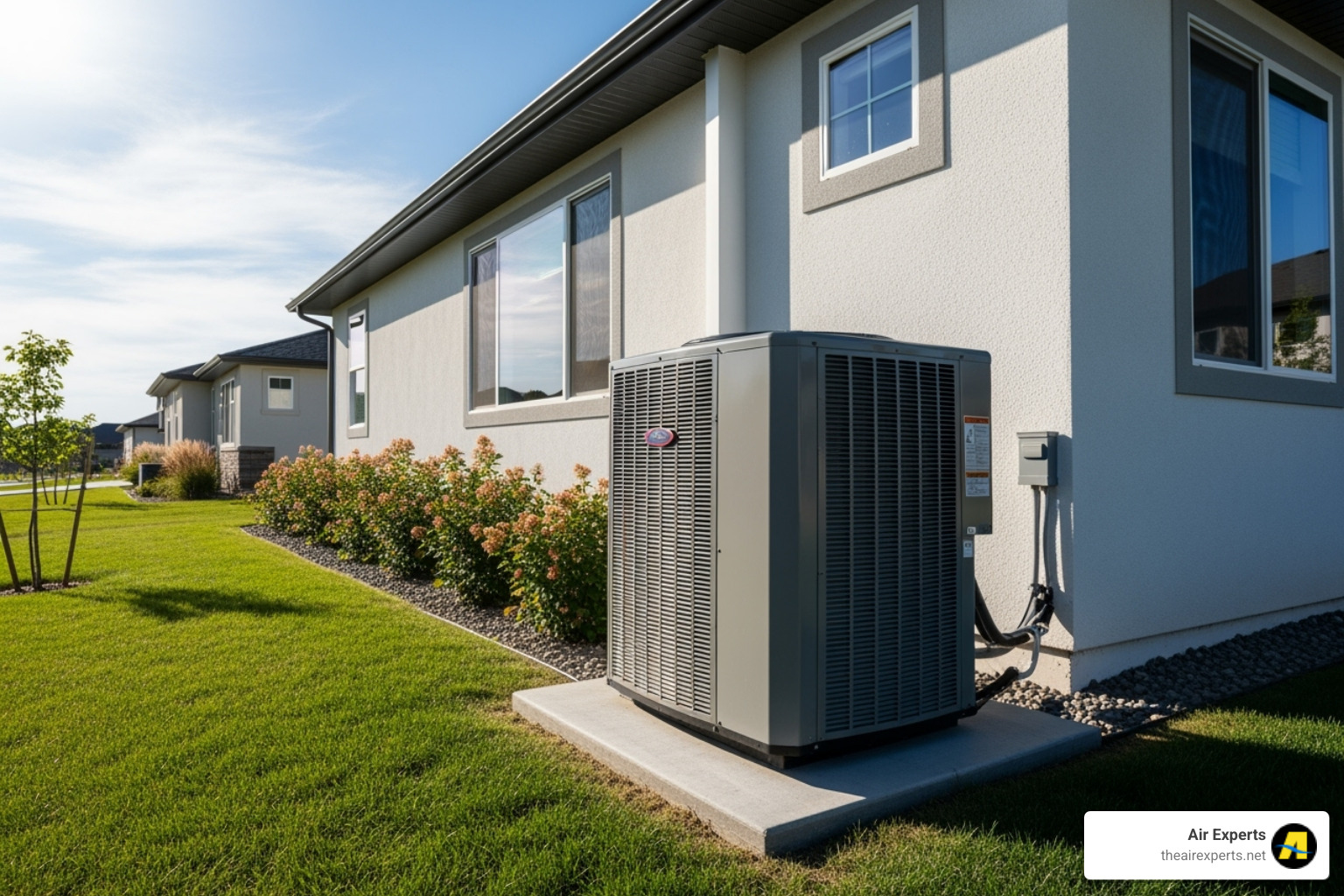
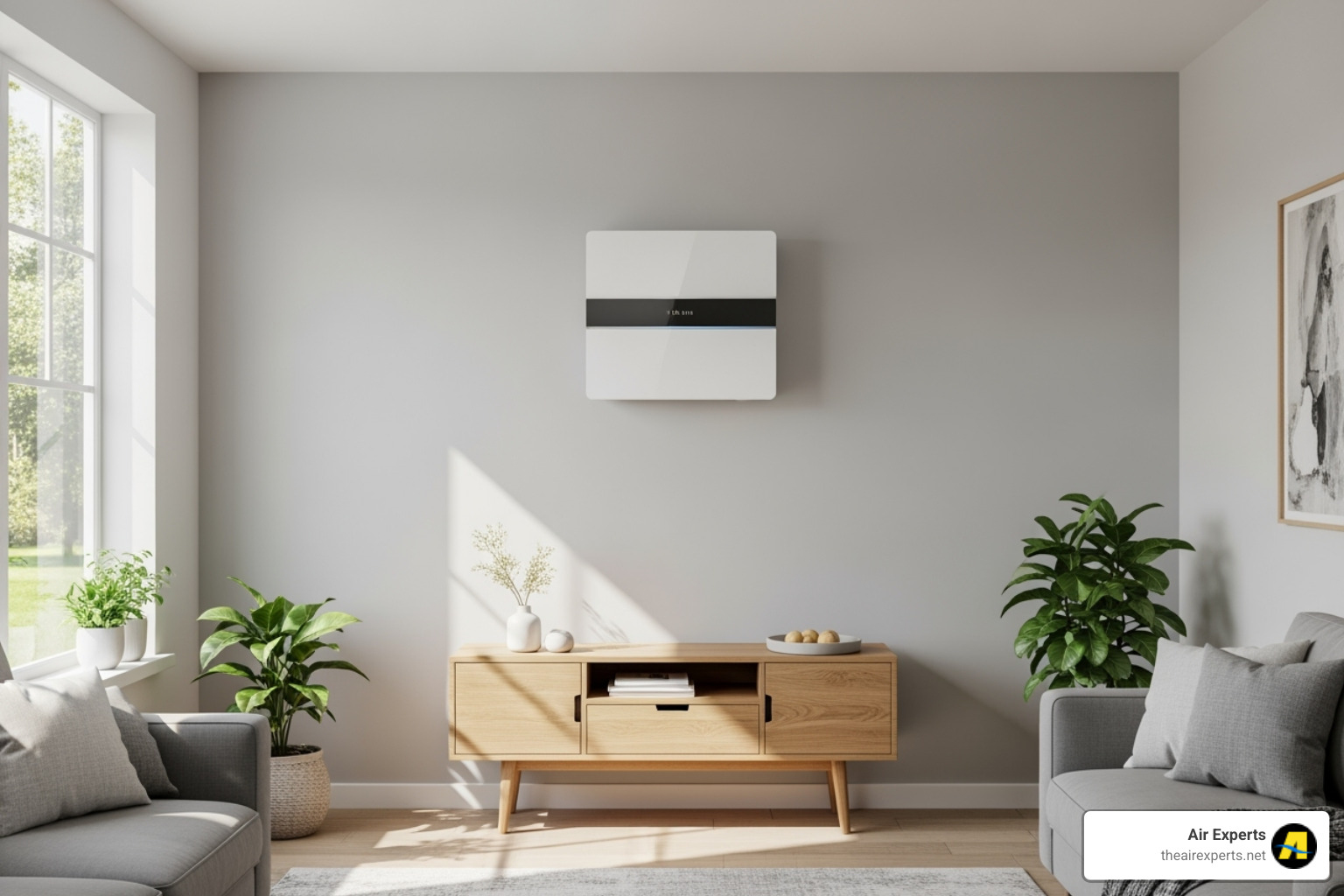
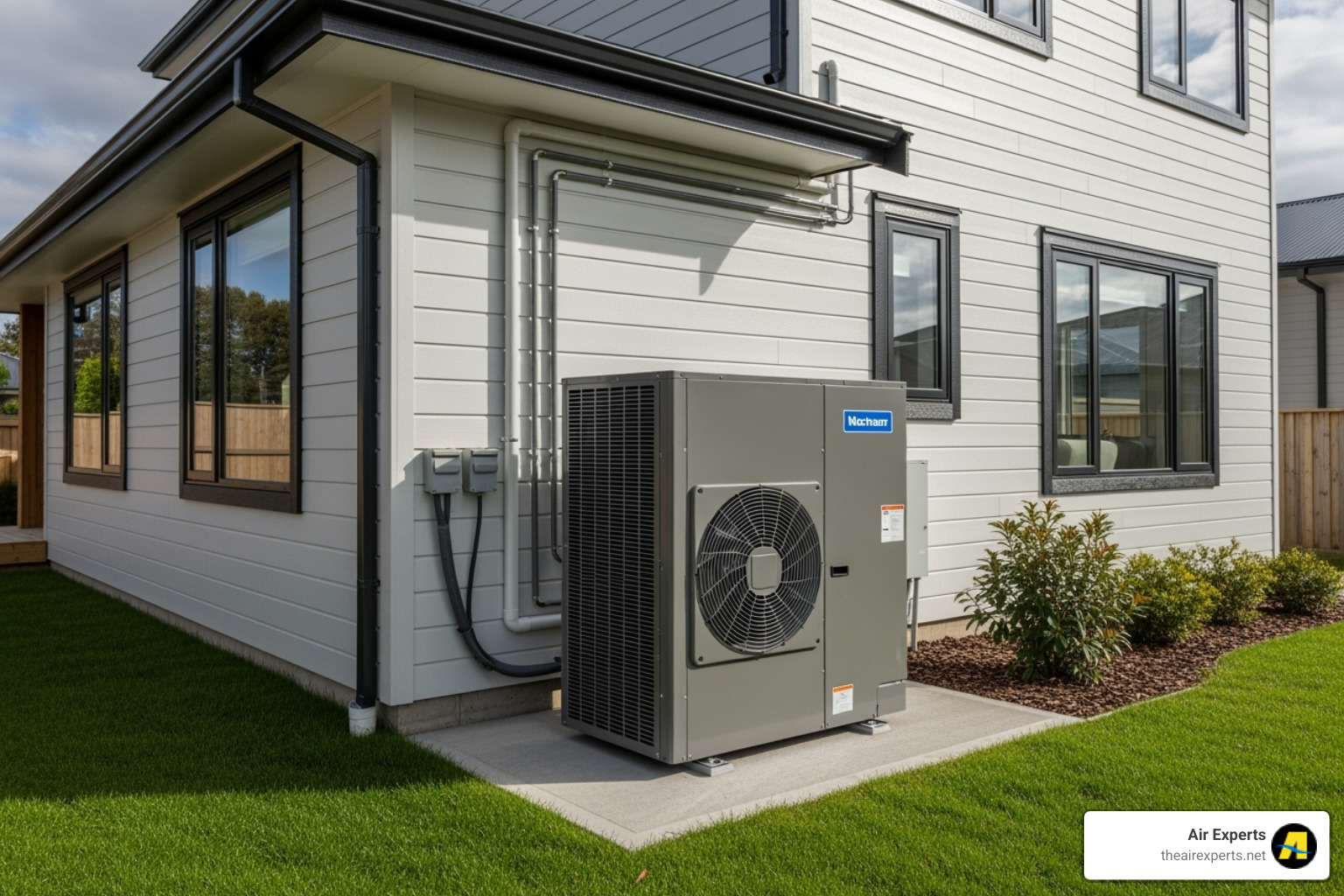
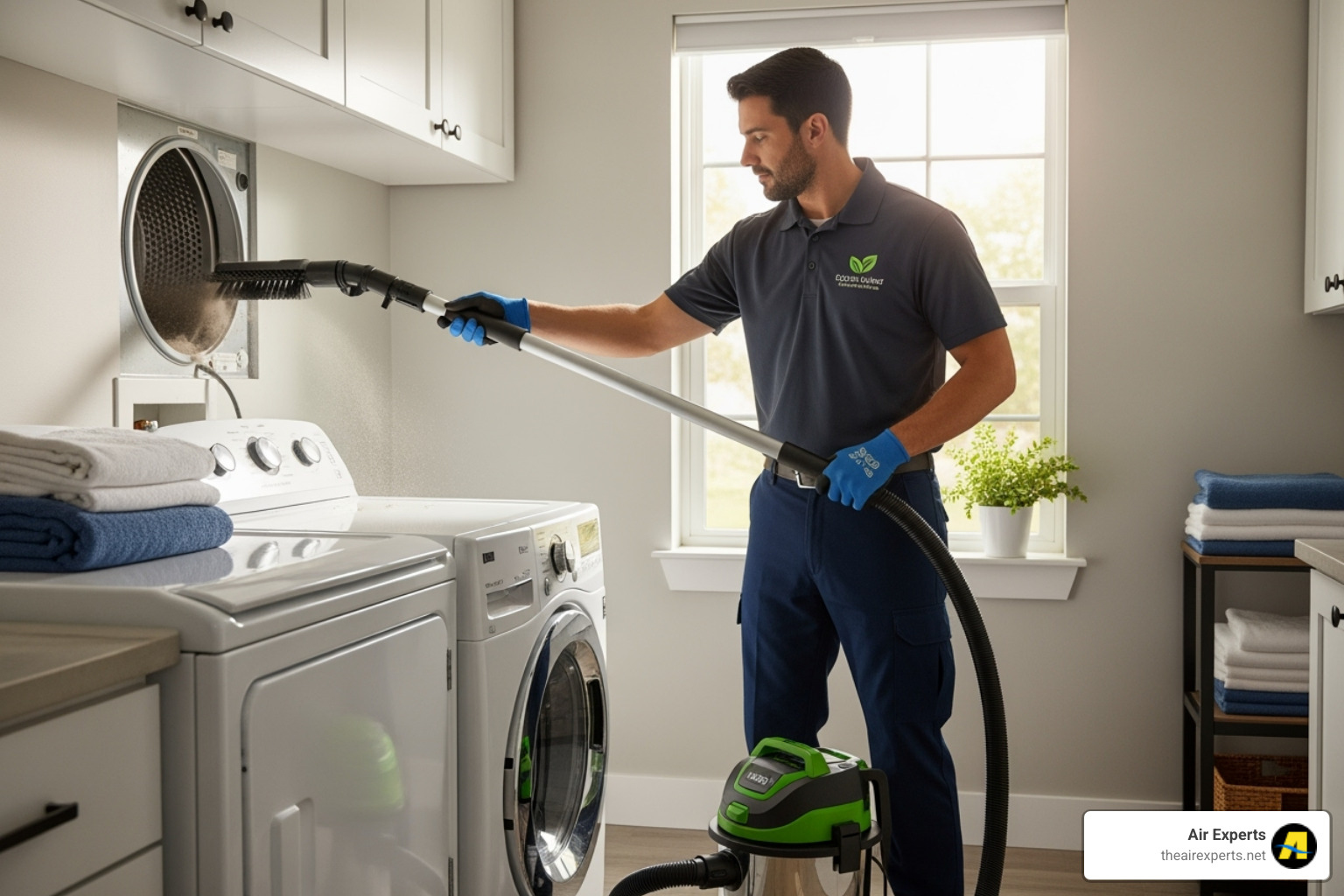

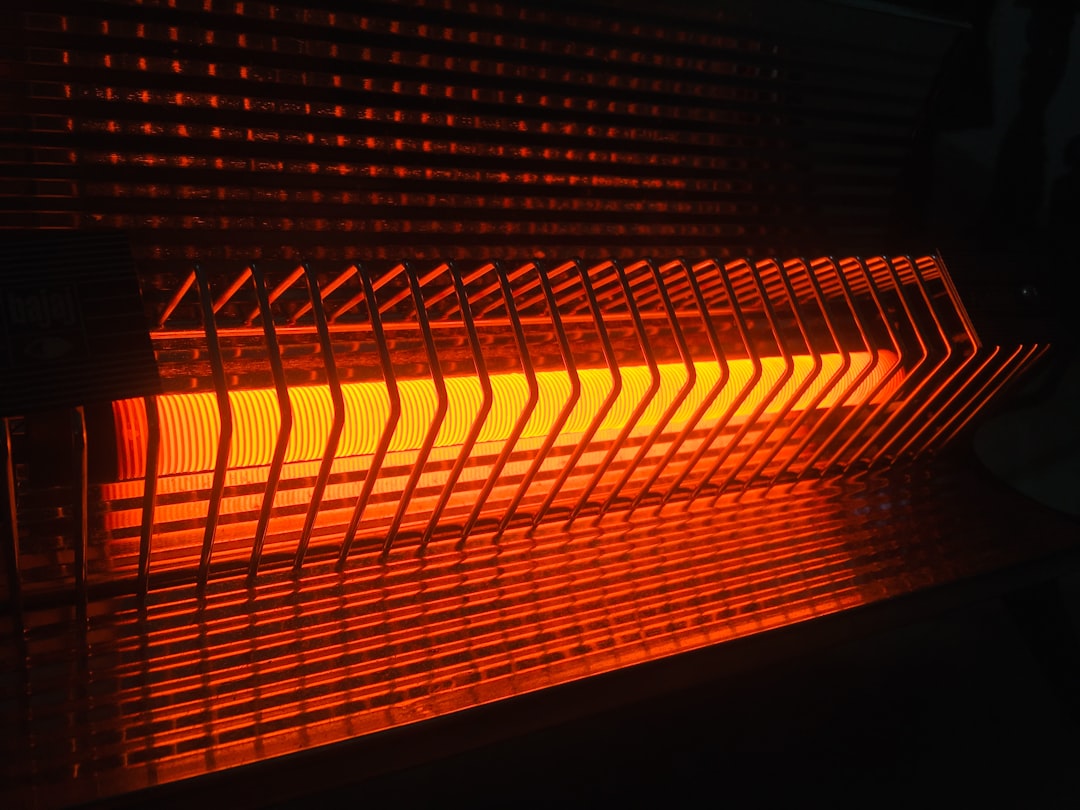
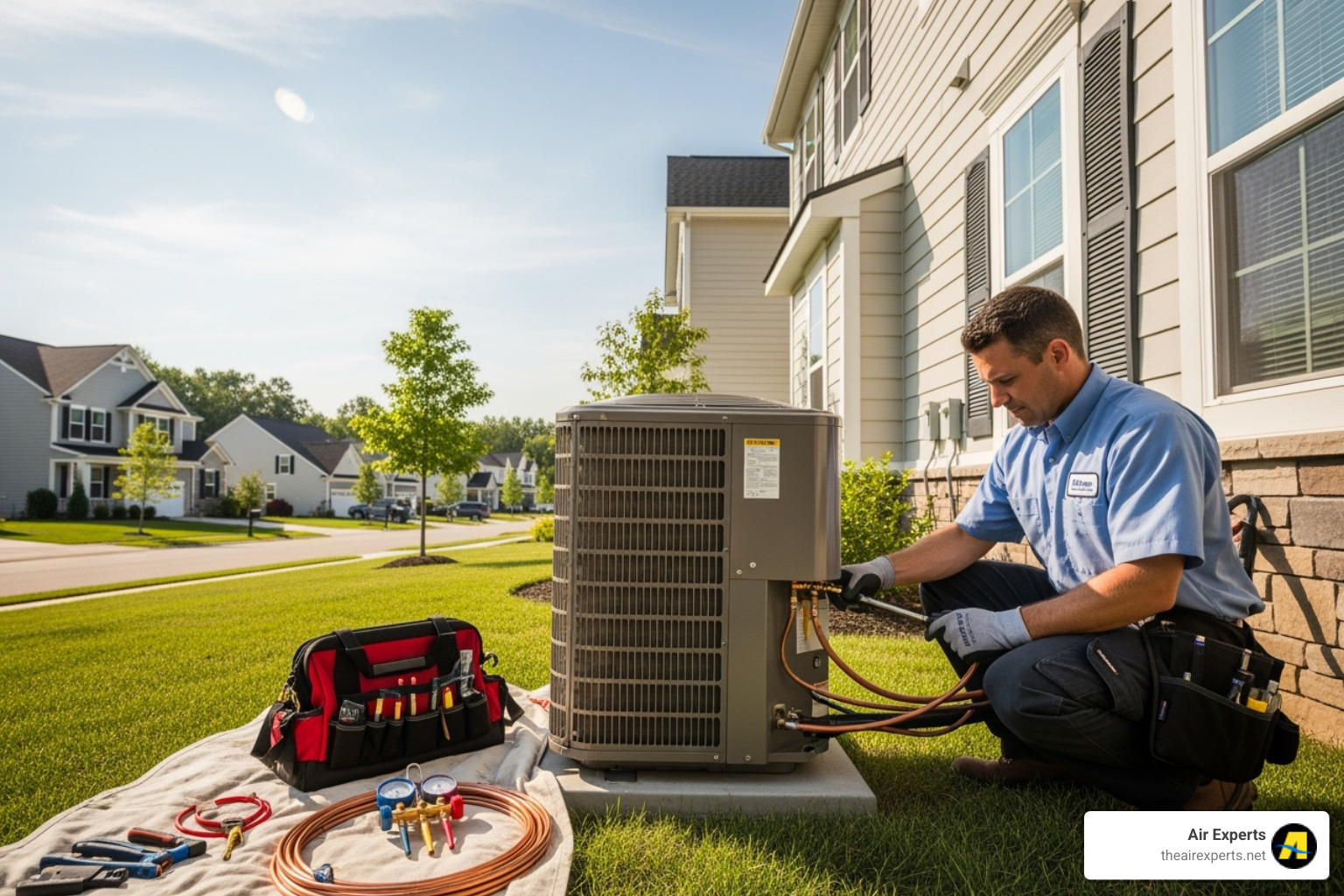
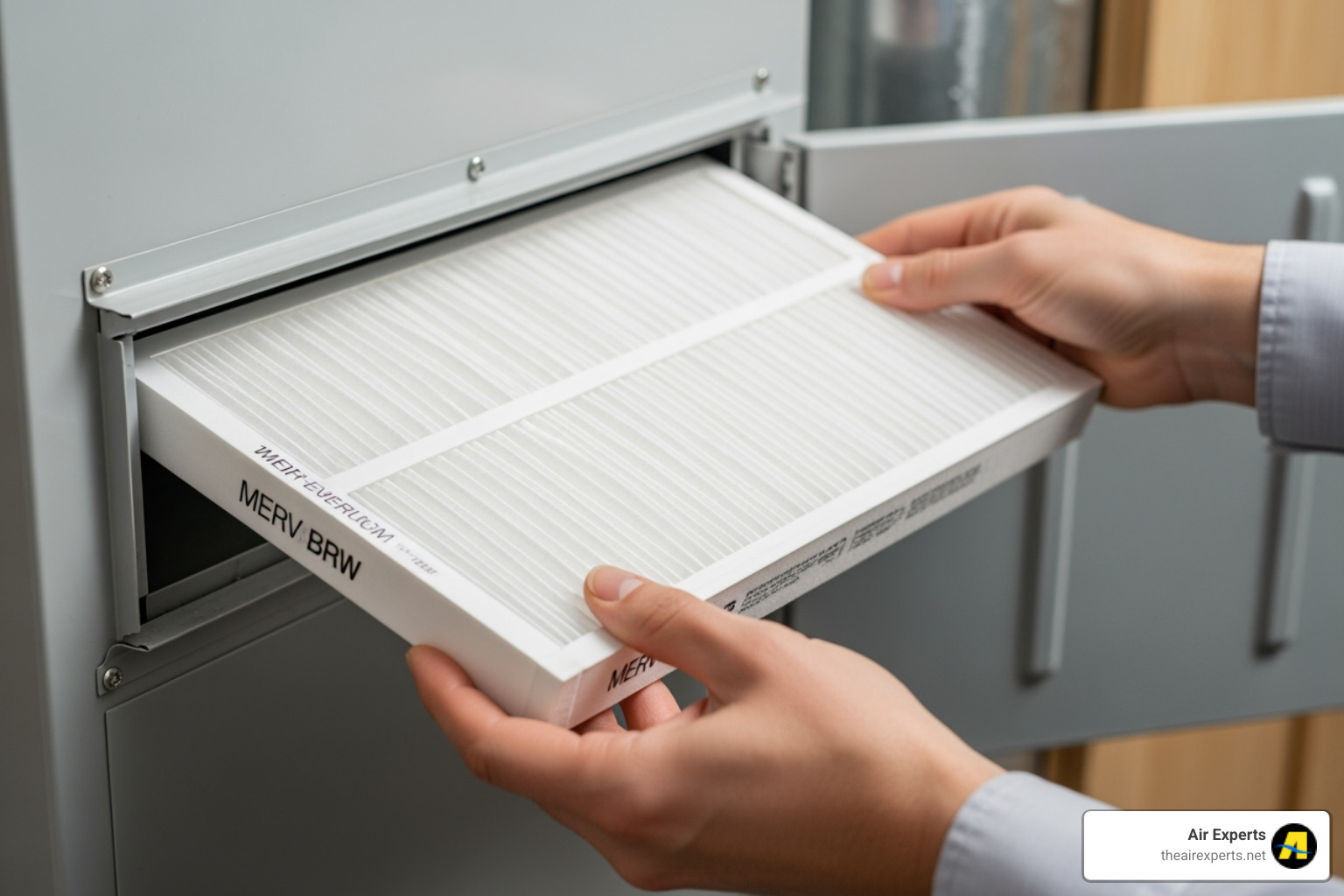
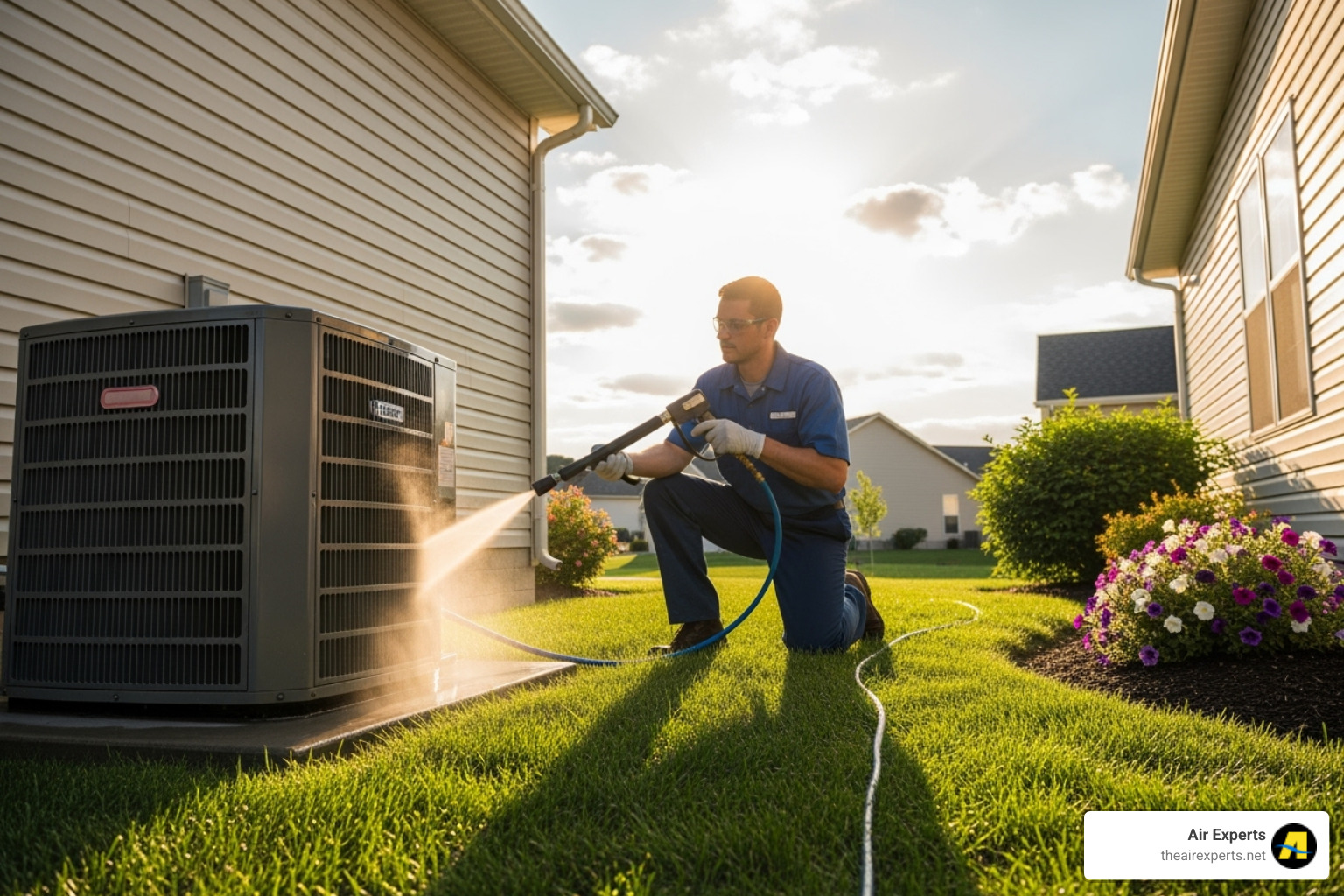
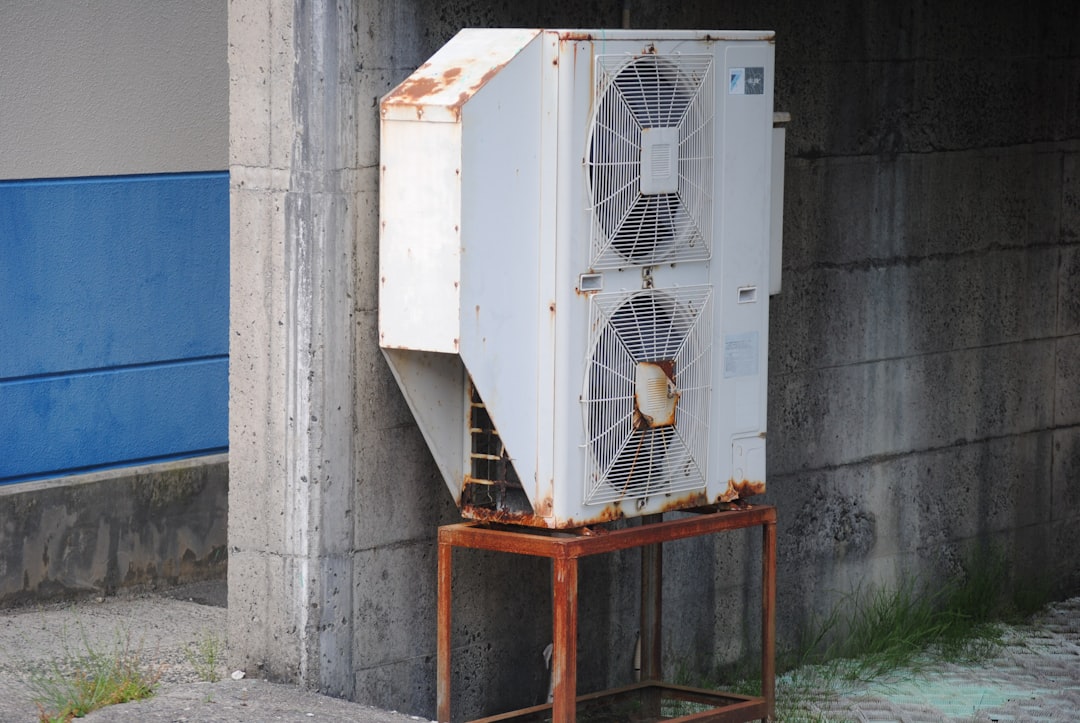
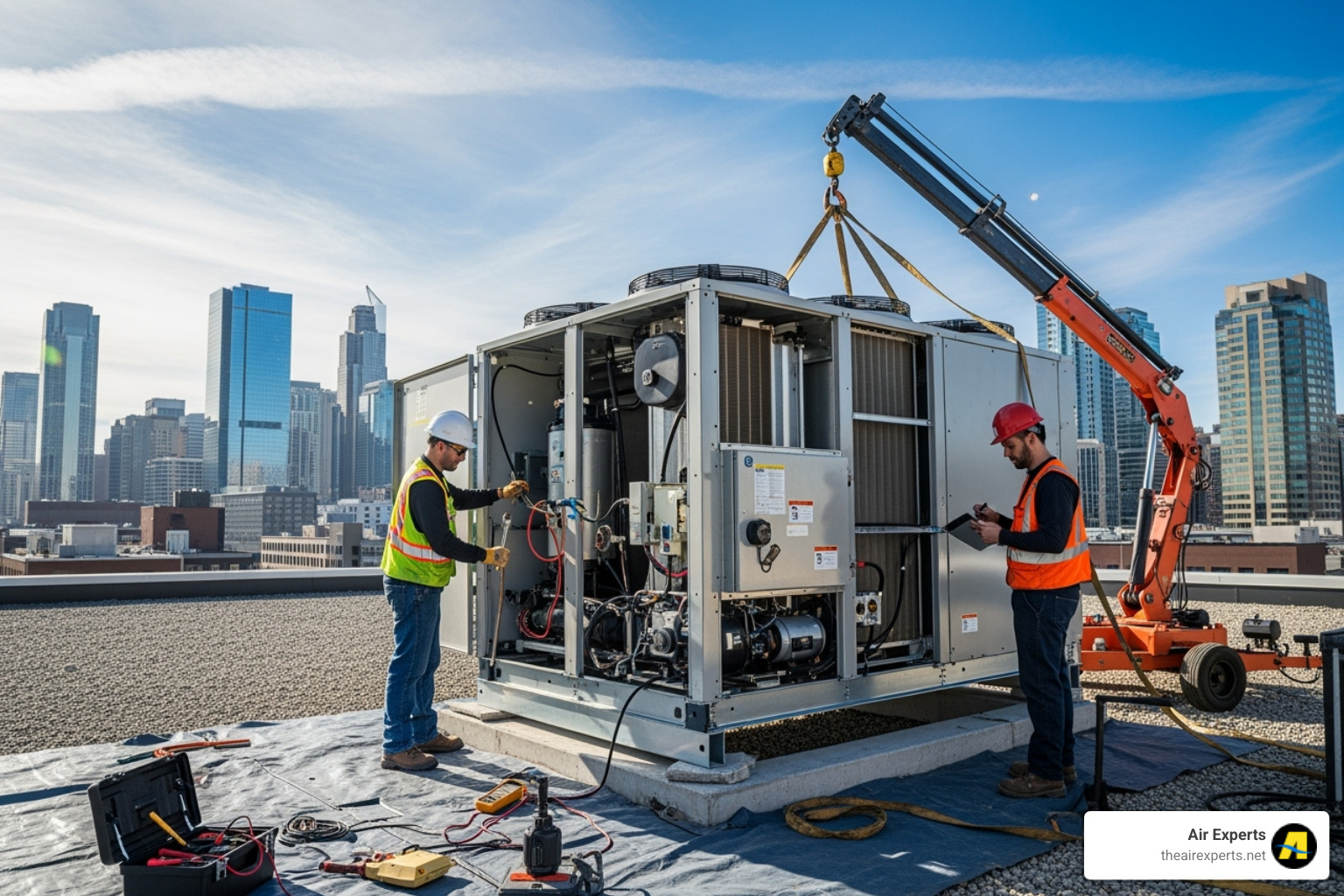
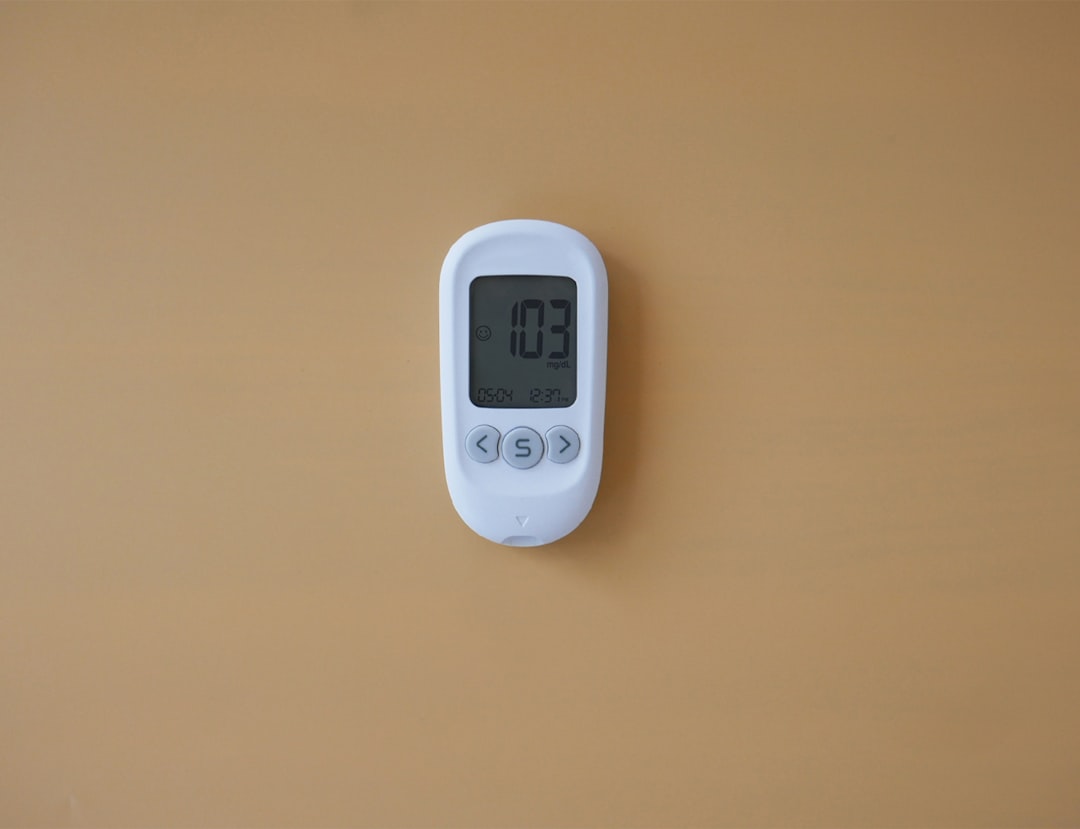
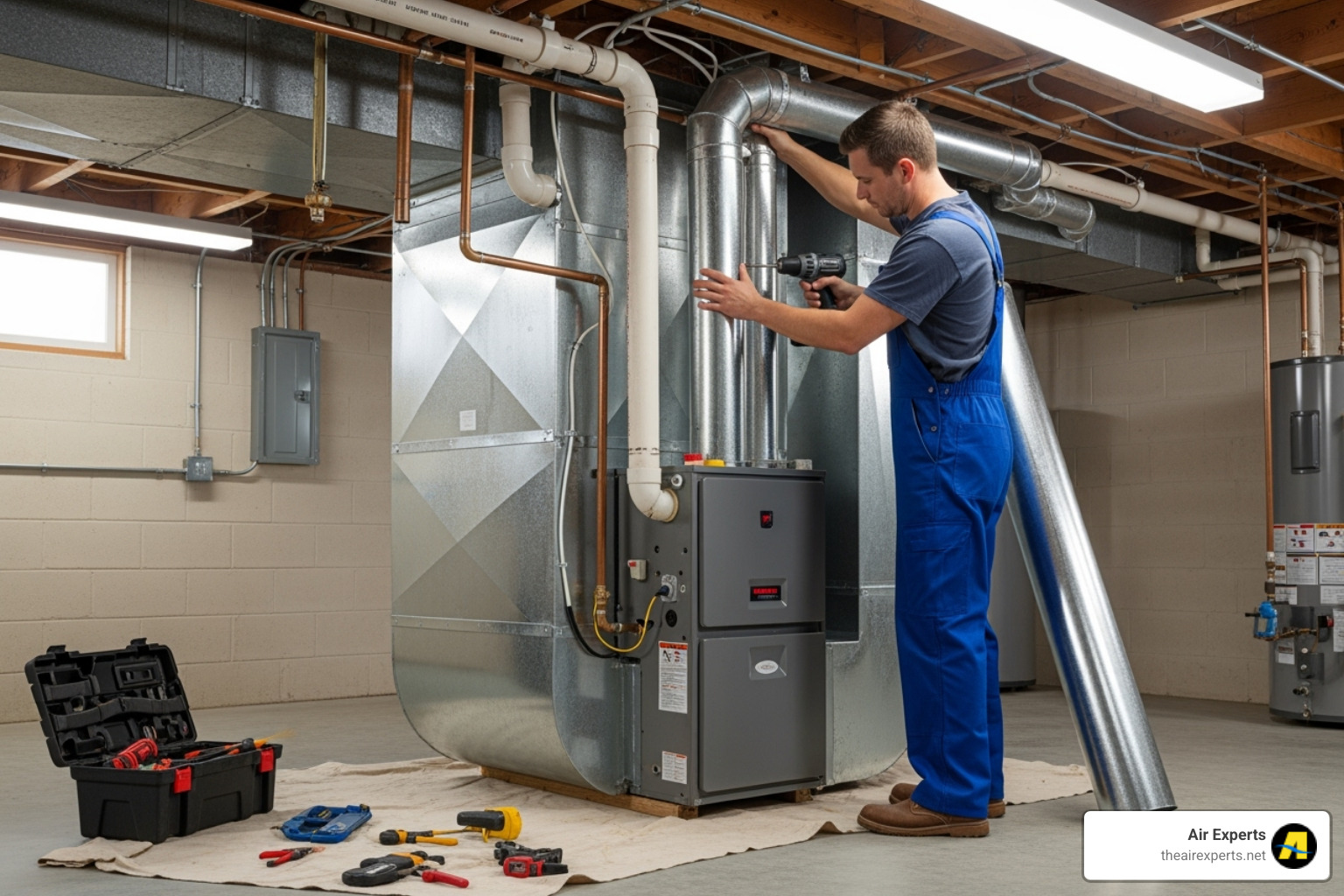
.svg)
.svg)




.svg)
.svg)
